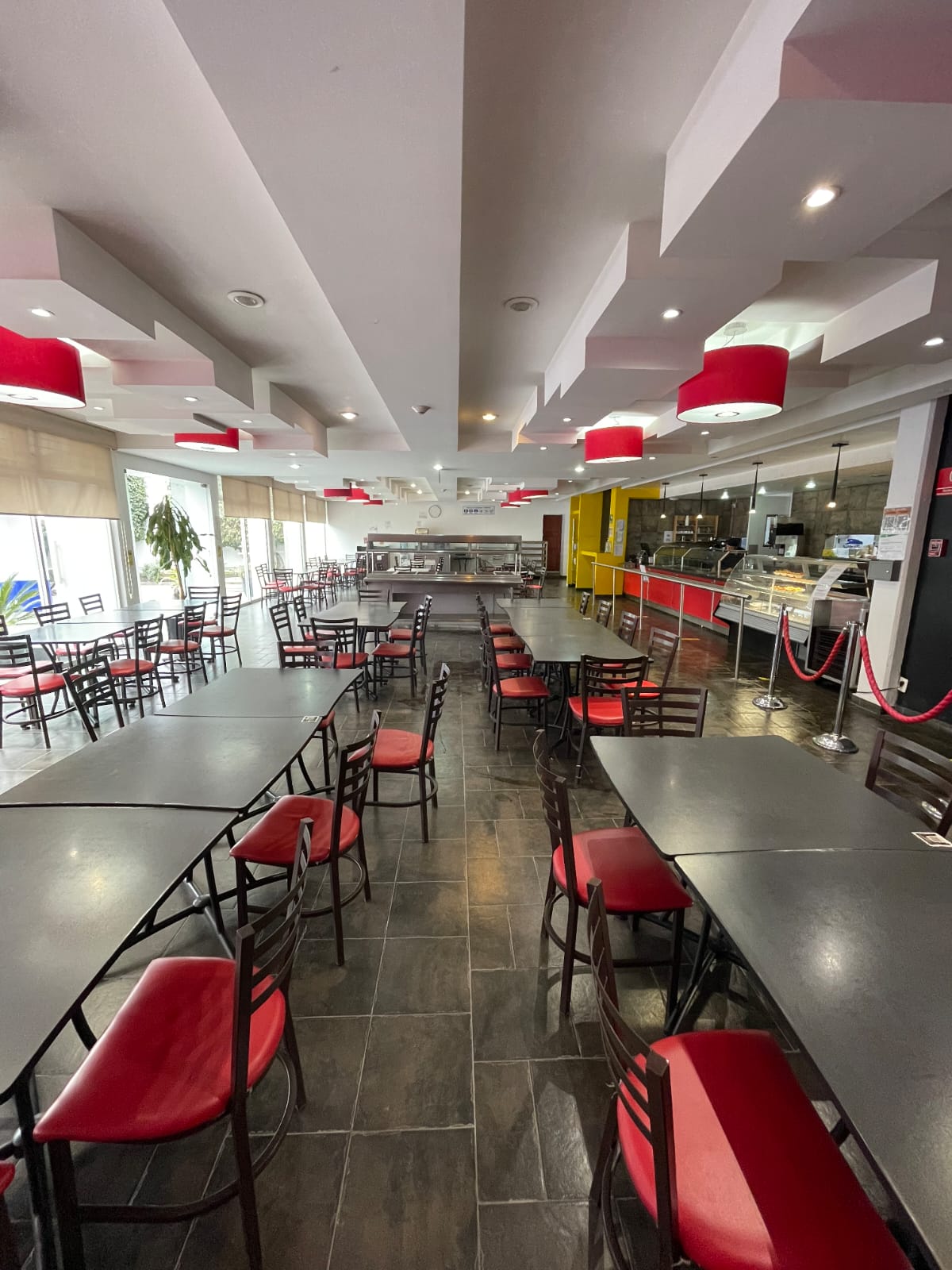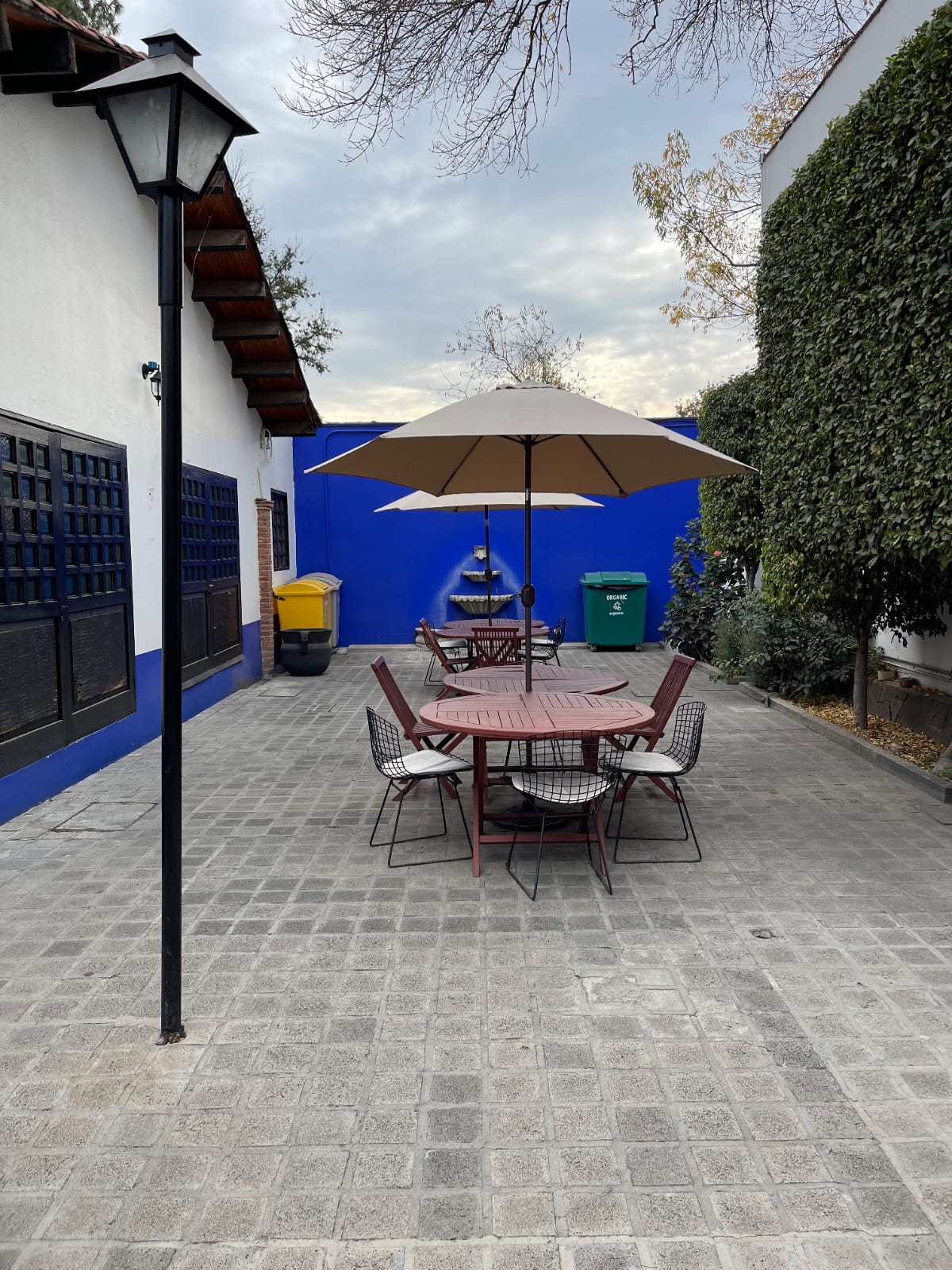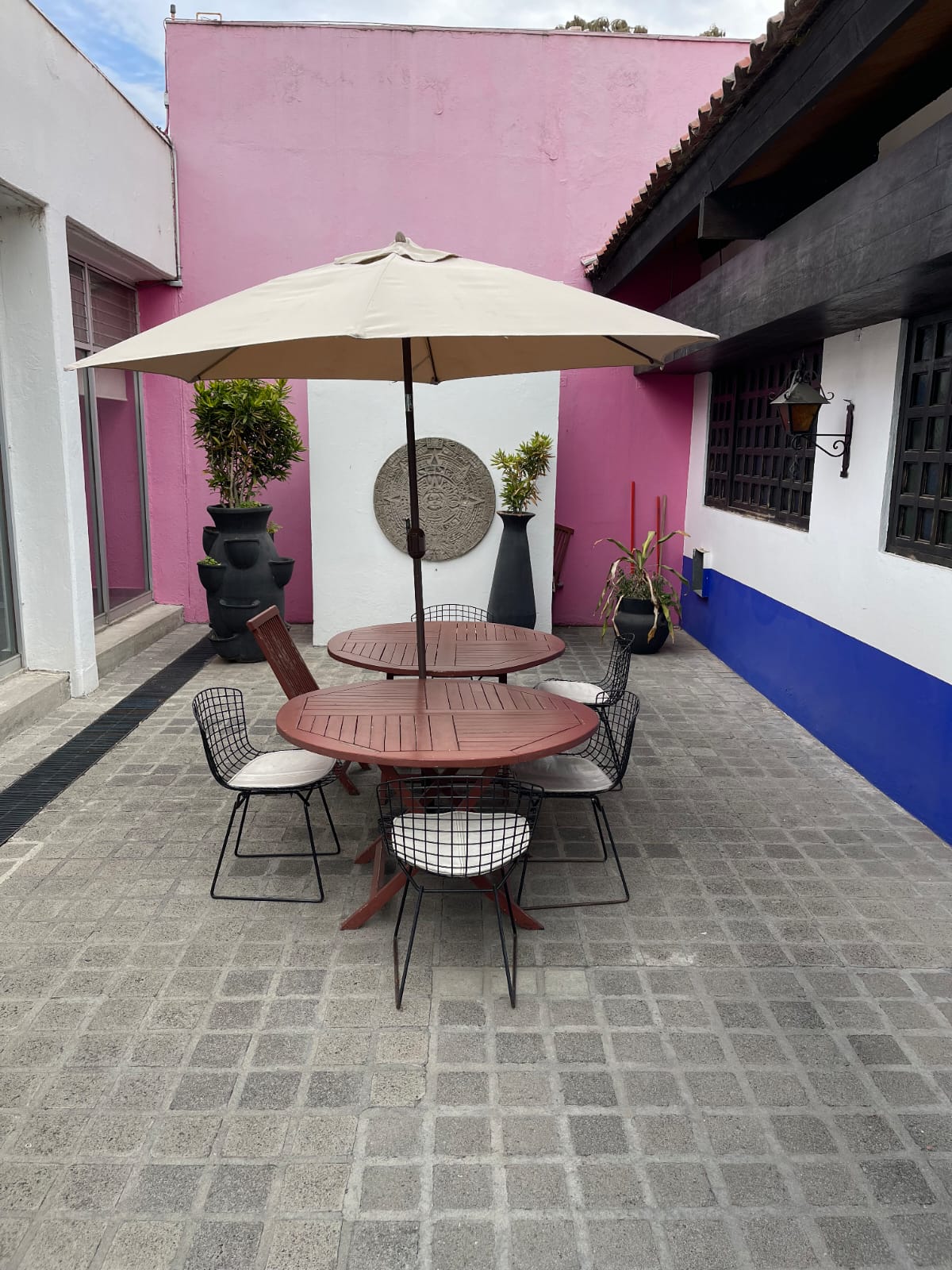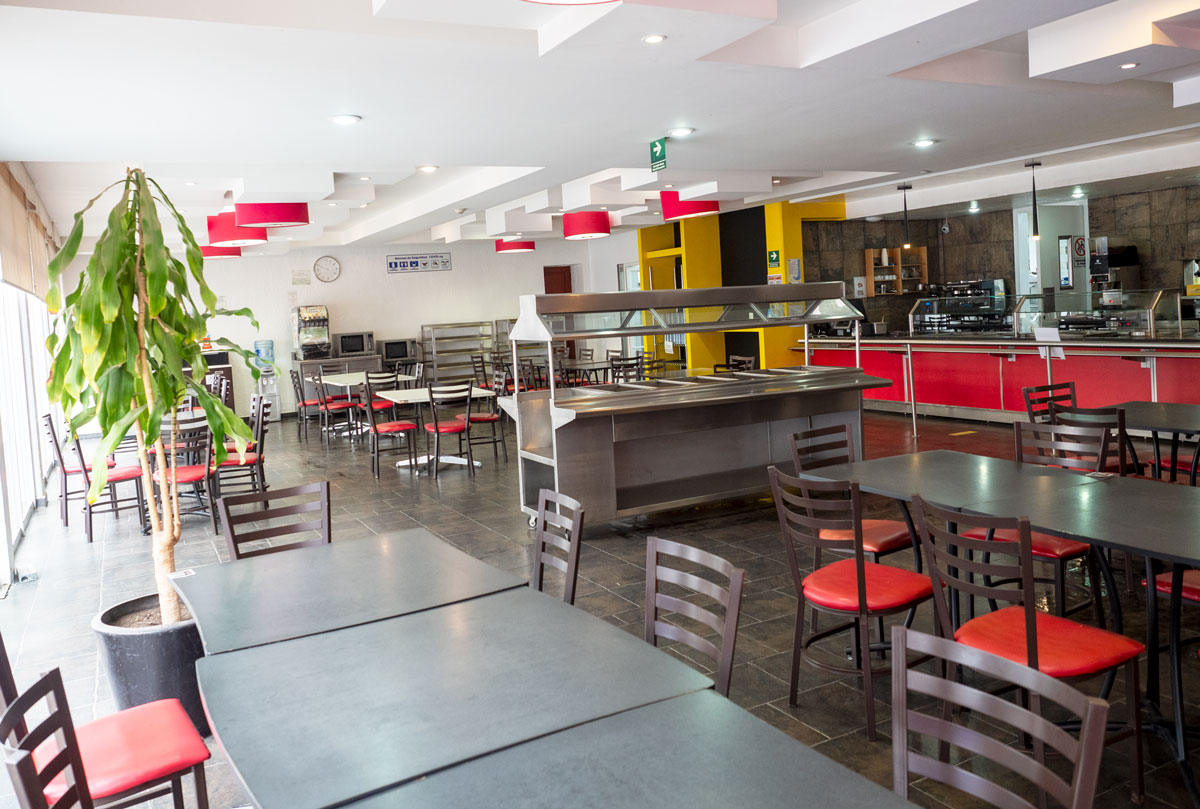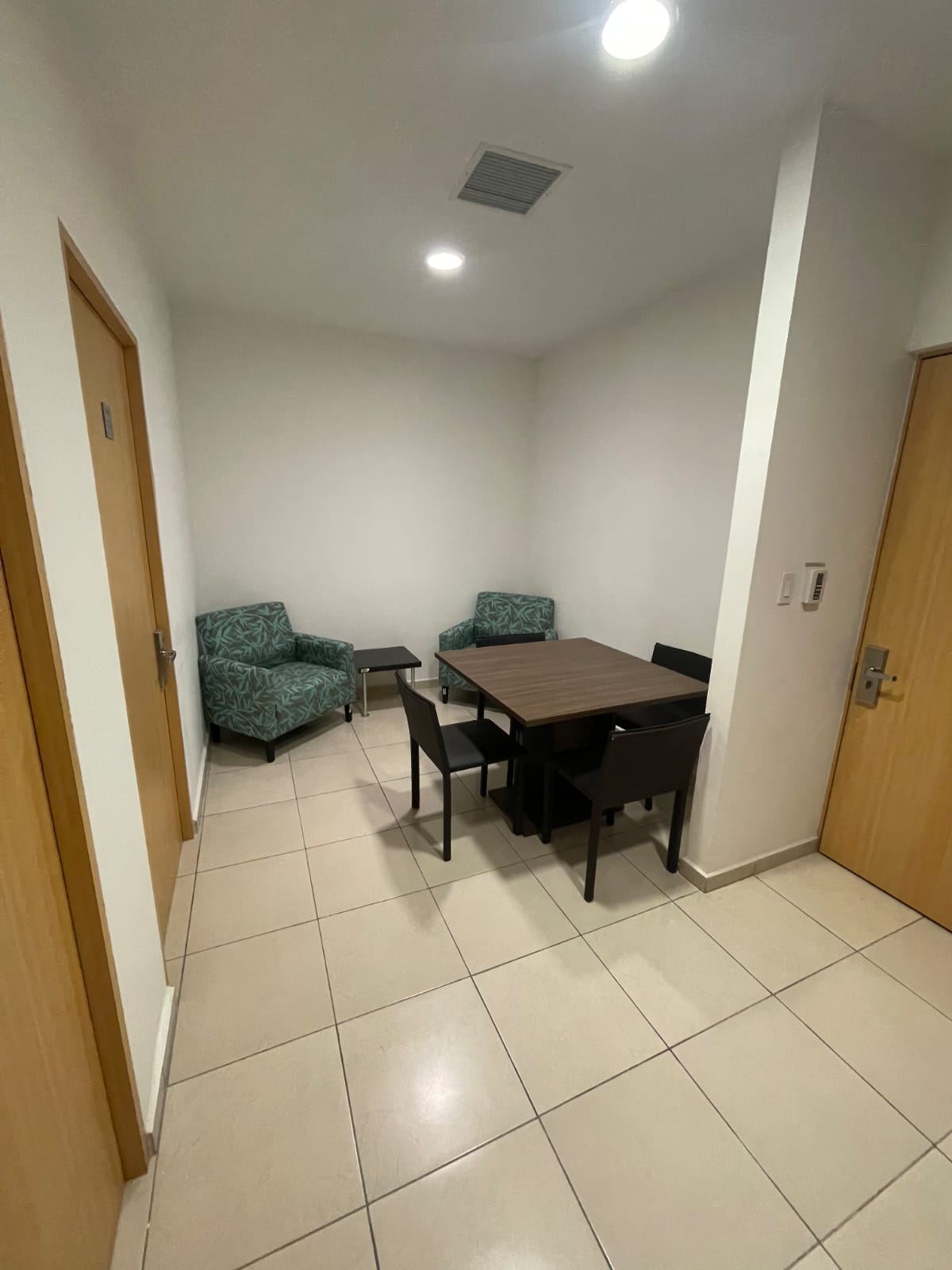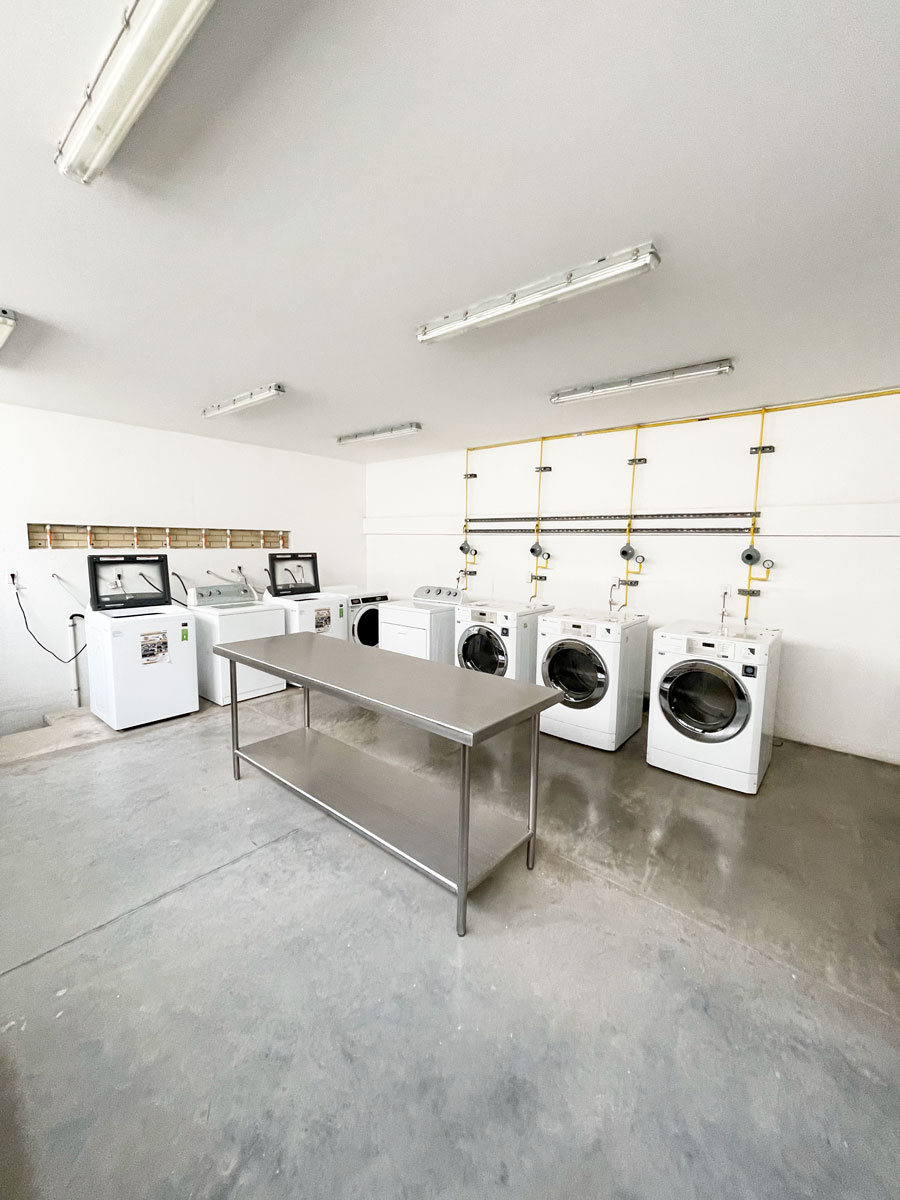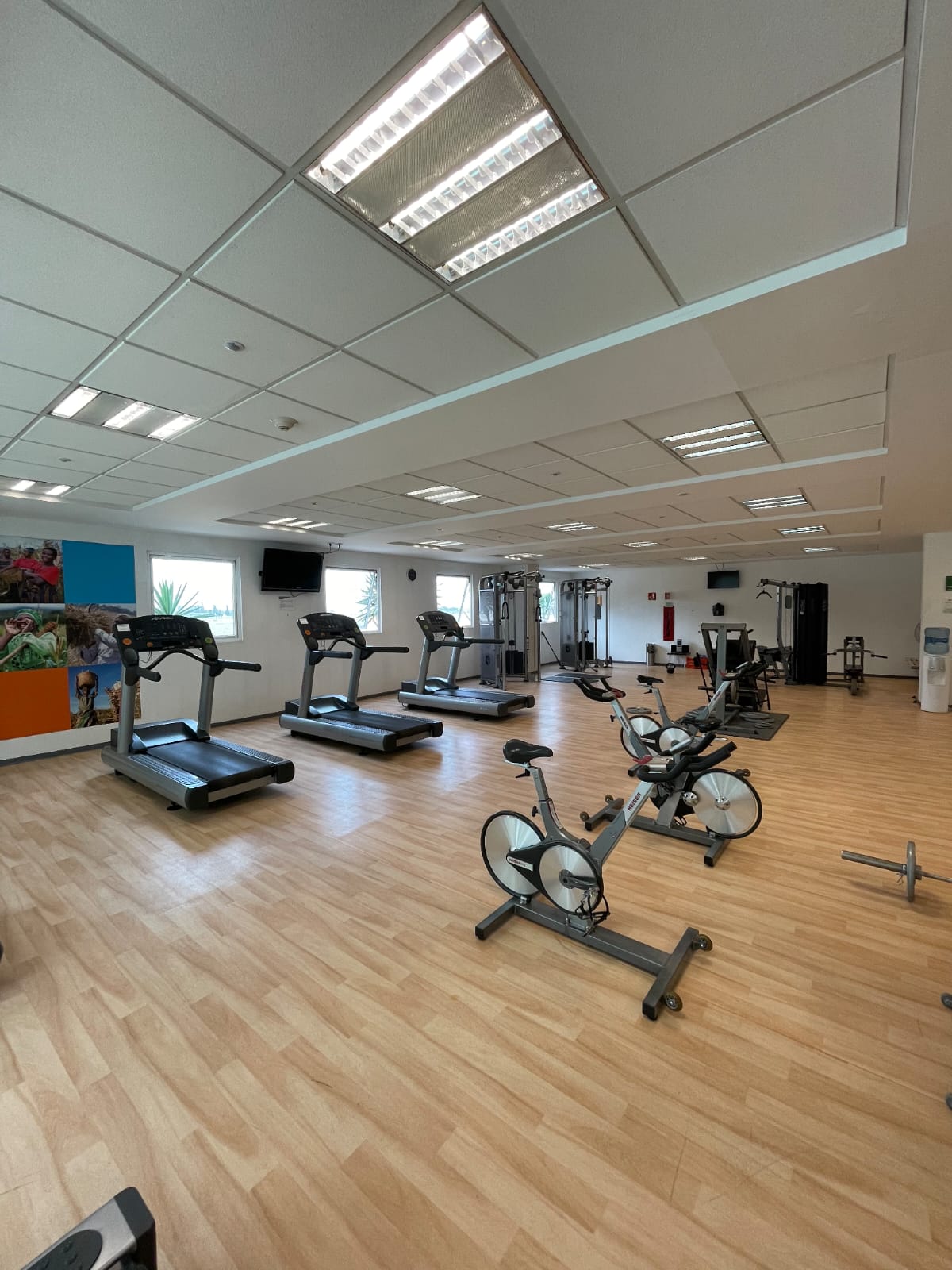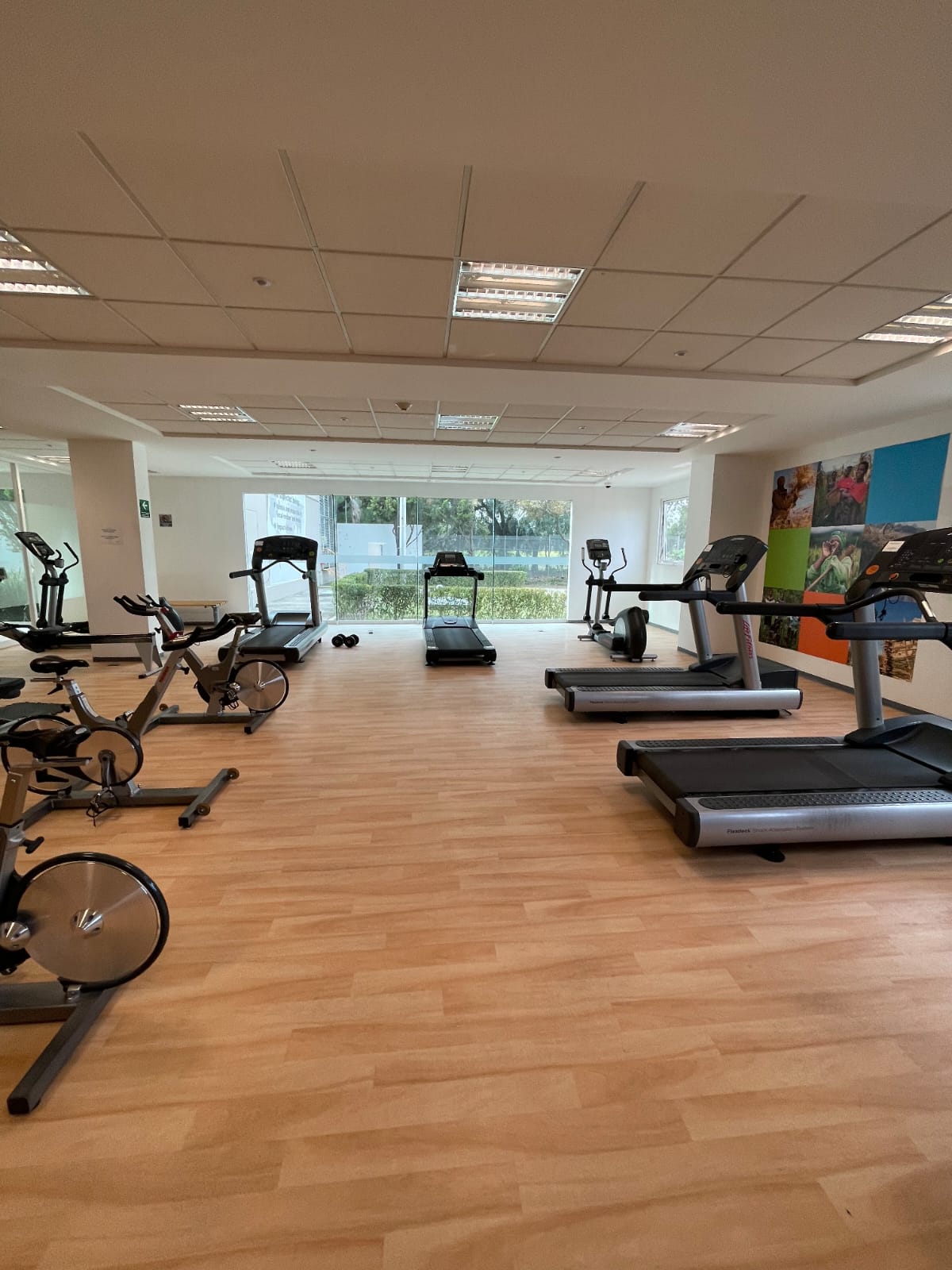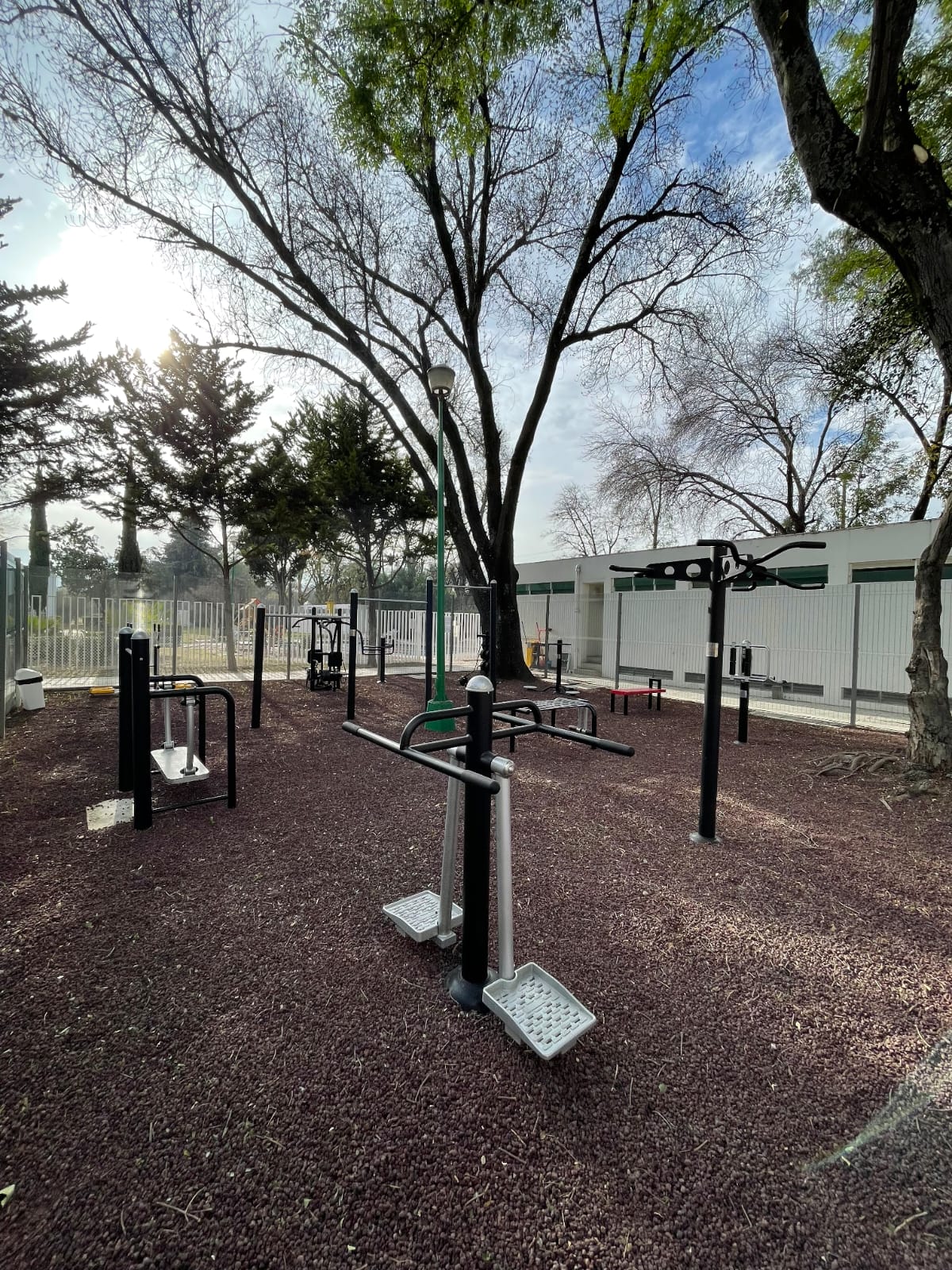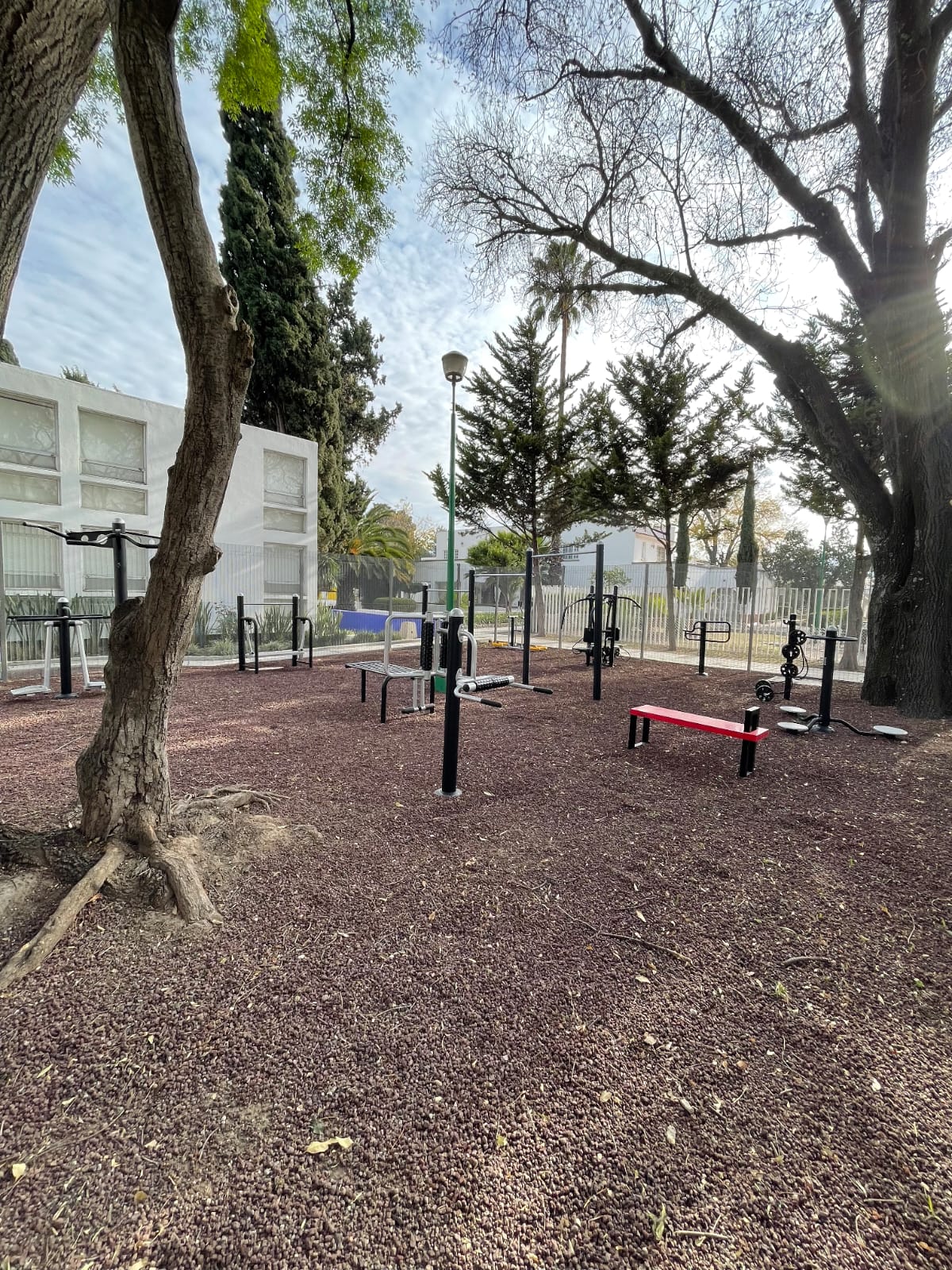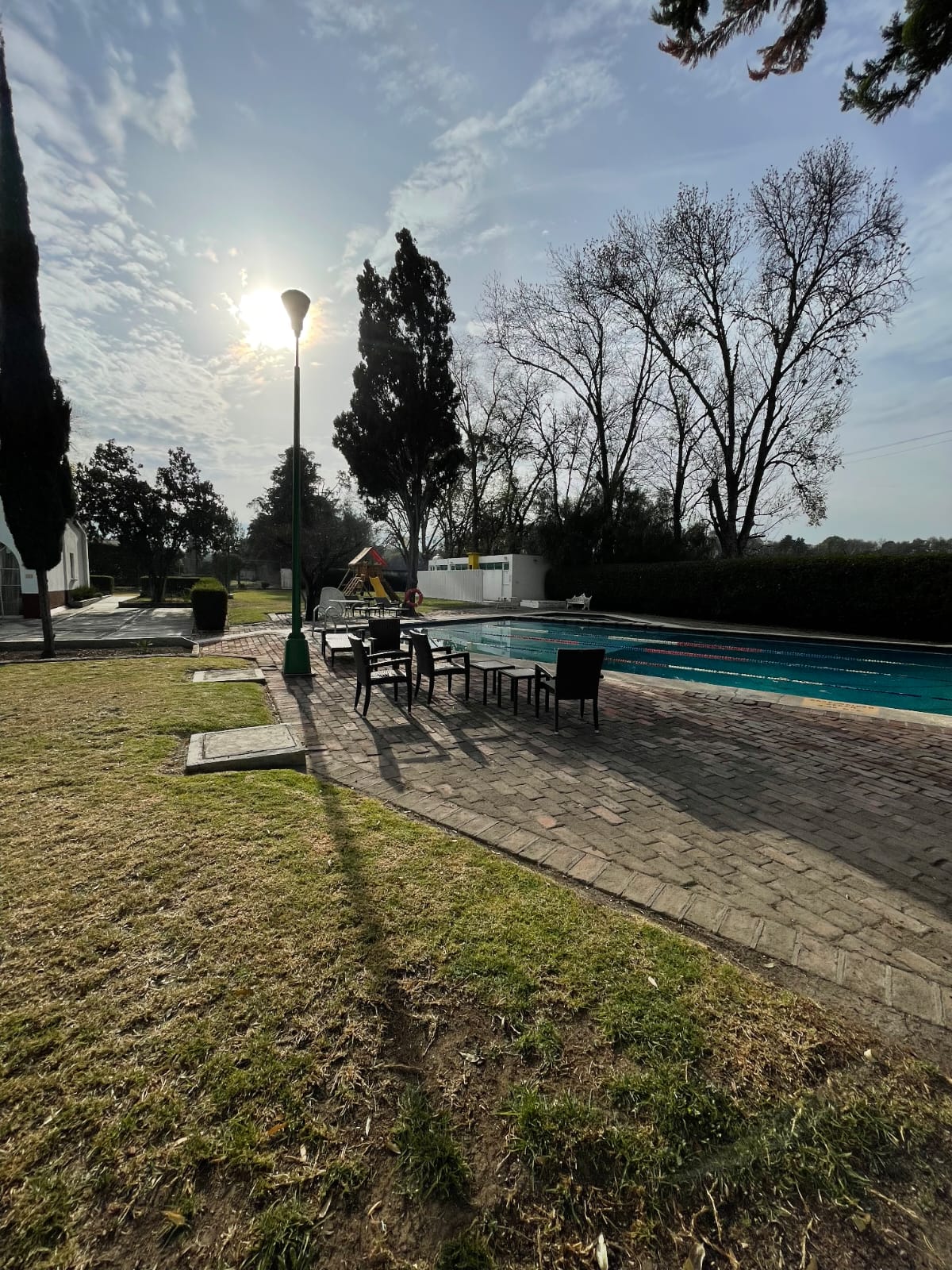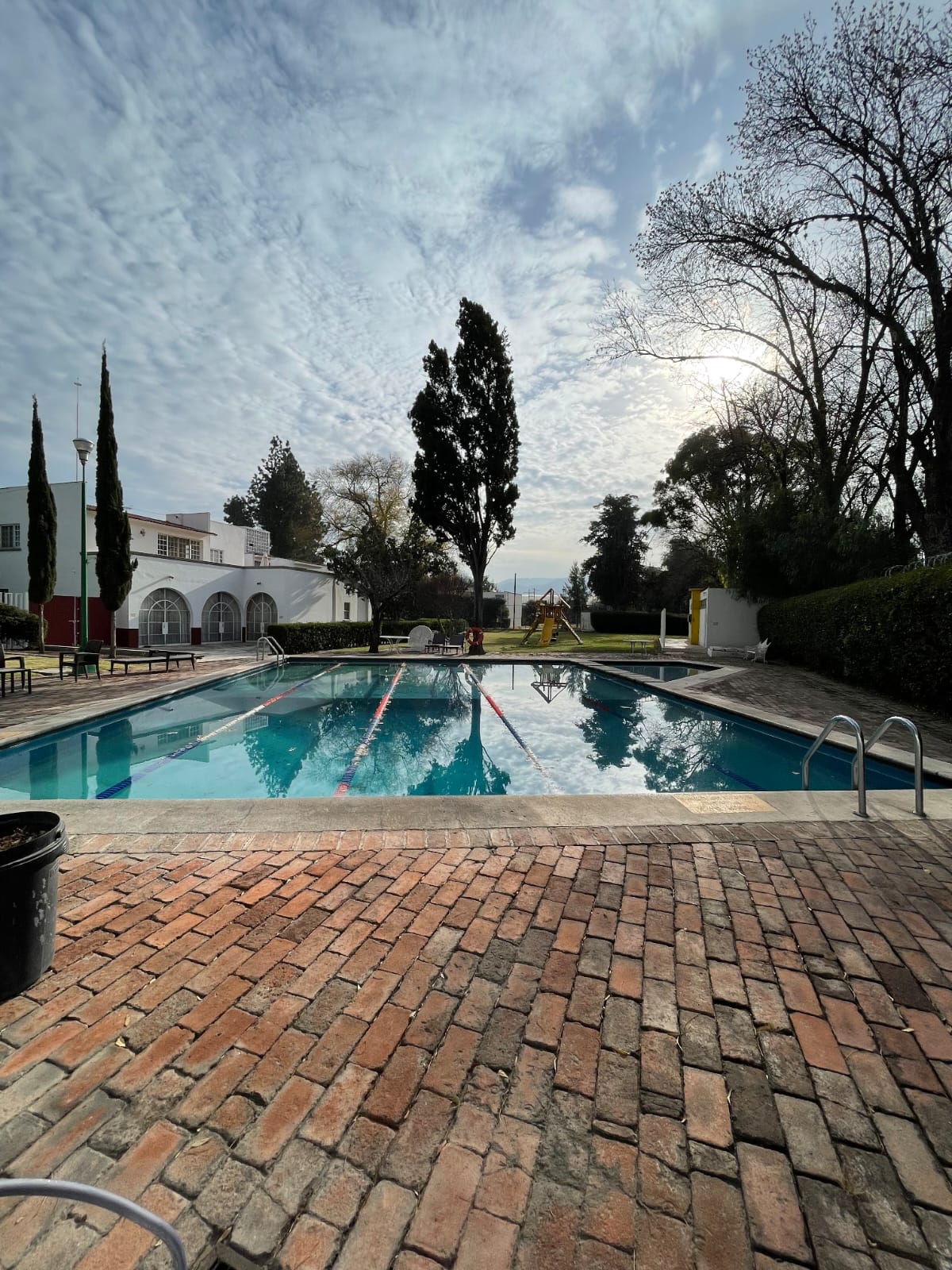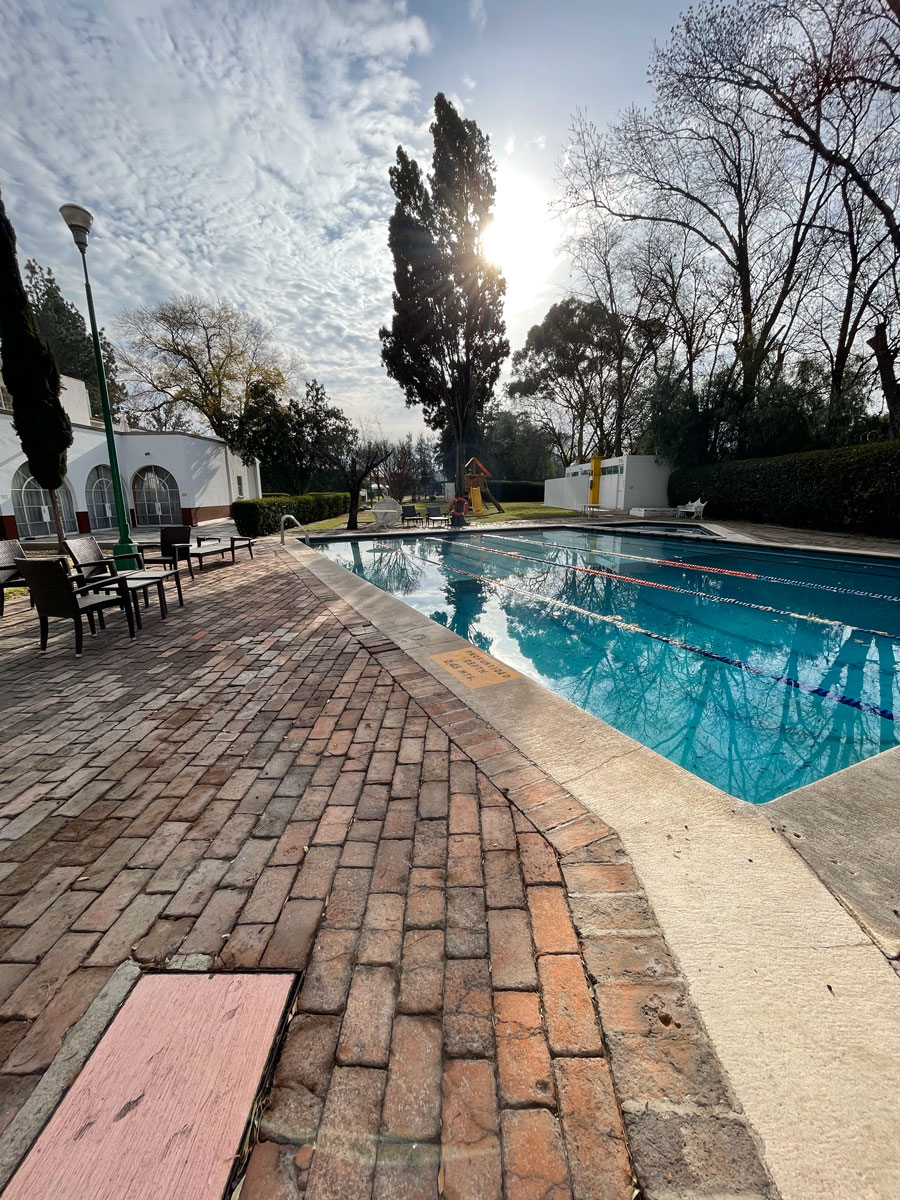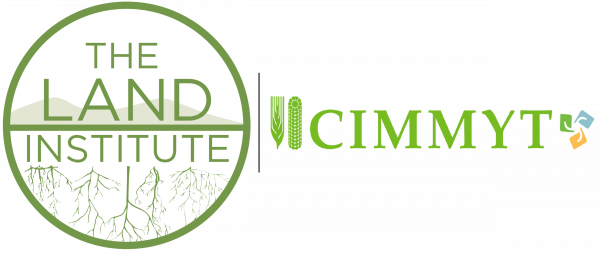
Perennial Grains Research Meeting 2025
March 11-13, 2025
@ CIMMYT headquarters – Improving the livelihoods of smallholder farmers around the world
We look forward to welcoming you to the 2025 International Perennial Grain Meeting, co-hosted by The Land Institute (TLI) and CIMMYT the week of March 10th, 2025 at the CIMMYT Campus in Texcoco, Mexico. Core conference days will be March 11-13th with an agenda focused on developing the Pathways to a Perennial Future and with confirmed participation of over 100 scientists and partners from 30+ countries around the world.
We will be using this website to share information about Texcoco, the CIMMYT campus, and the convening agenda as it’s available. Please be sure to check your inboxes for additional information about your individual RSVPs, bookings, and logistics.
With best wishes,
Tim Crews, Director of The International Initiative at The Land Institute
Sieglinde Snapp, Program Director of Sustainable Agrifood Systems (SAS) at the International Maize and Wheat Improvement Centre (CIMMYT)
Pathways to a Perennial Future
Event in brief: As enthusiasm for regenerative agriculture continues to expand globally, the perennialization of grain production is the next frontier. Not only will the growth of perennial grains themselves improve soil health, but perennial grain cultivation has the potential to increase nutrient retention, reduce energy use, and enhance farmer income; they are part of the solution for global food security and climate change.
From March 11-13, 2025, The Land Institute will convene a meeting with CIMMYT to advance research and programming on breeding, cropping systems and adoption of perennial grains. Sessions will be organized around pivotal, multi-disciplinary themes
that are central to advancing perennial grains research, especially in an international context:
- Perennials for climate change mitigation and adaptation
- Breeding methodologies for perennial grain crops
- Intercropping and cropping system diversification strategies
- Intellectual property rights
- International data sharing
- Participatory/Transdisciplinary methods
- Defining and participation in regional perennial research hubs
- New candidate species for de Novo domestication
- Under-researched areas of ecological intensification
Discussion and working group sessions around these themes are expected to culminate in identifying ways forward for the Global Network to make progress on setting up systems, resources, or initiatives; the goal is to have a globally informed roadmap that will help guide TLI and other regional hubs in making progress on perennial research and development. Side meetings of crop or topic-specific subgroups can be organized for March 10 and 14, the dates preceding and following the core meeting.
Event Context: Previous International Perennial Grain Research meetings held in Rome, Italy (2013), Estes Park, Colorado, US (2014) and Lund, Sweden (2019) were focused on connecting and coordinating existing perennial grain researchers around the world. Organized as research workshops these meetings were successful in advancing crop specific partnerships, developing flagship research initiatives and developing global networks. Building on the expanded research collaborations that were made at these workshops, the 2025 meeting will look to further expand the scope and goals of previous convenings by inviting new partners into perennial grain research and going beyond crop-specific working groups to focus on cross-cutting themes.
Invitations and Space Limits: Due to space constraints at CIMMYT, not all researchers with interest in attending will be able to participate. Please feel free to let colleagues know about this meeting, kindly noting that we are encouraging participation by people outside of the U.S. and Europe, including researchers new to perennial grains. We will try to accommodate as many researchers as we can and will follow-up with invitation requests as is possible.
Contact: The best way to be in touch is through the RSVP form emailed to you by Tim and Seig, but you can also message perennial2025@landinstitute.org for other needs.
SPEAKERS AND PARTICIPANTS
-
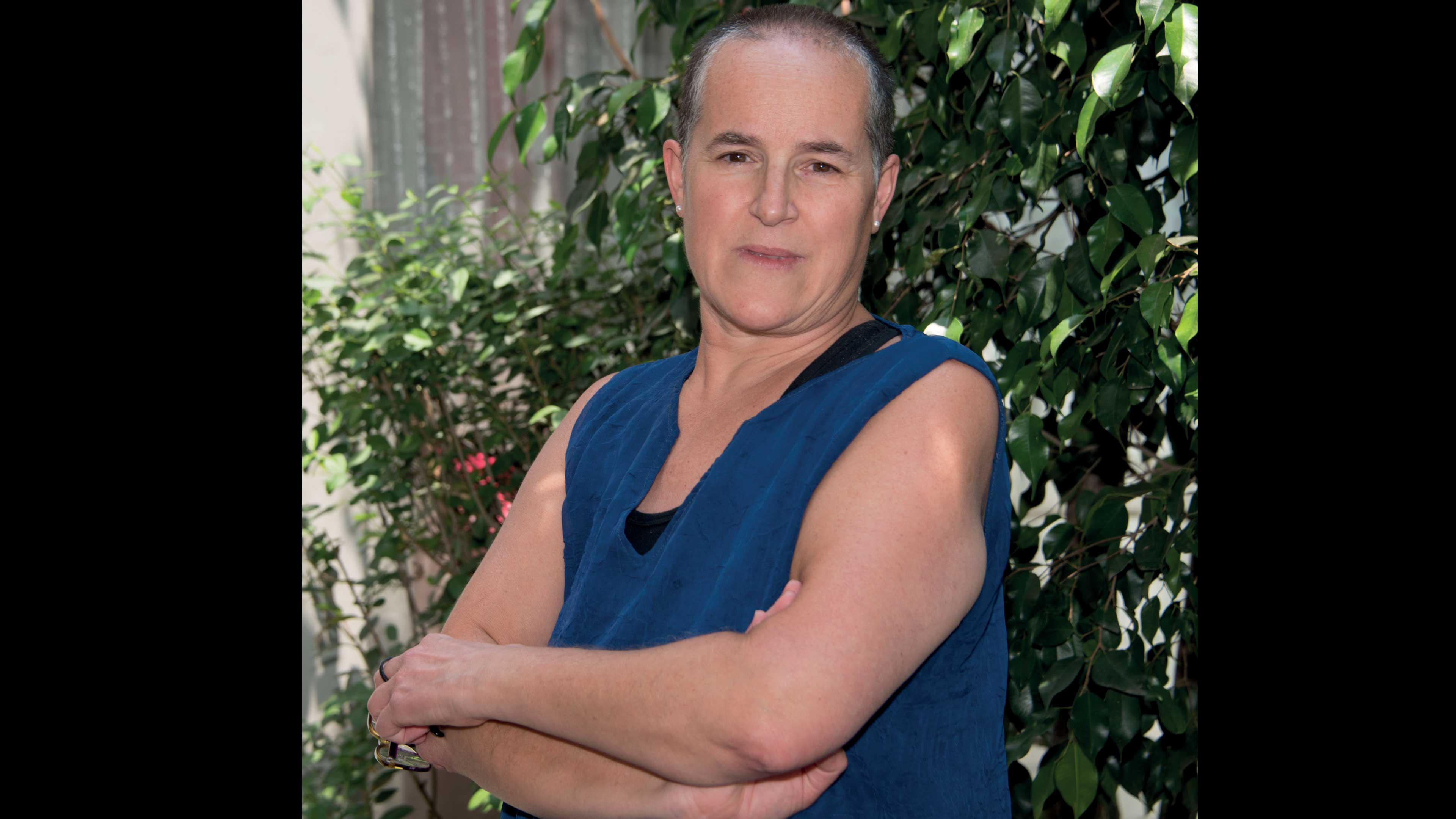
Francisca Acevedo Gasman
National Commission for the Knowledge and Use of Biodiversity (CONABIO)Francisca Acevedo Gasman, born in Chile and residing in Mexico City, holds a Biology degree from Grinnell College (Iowa, USA), a Master’s in Plant Genetics from Colegio de Postgraduados in Mexico, and a PhD in Plant Molecular Biology from the Universidad Politécnica de Madrid, Spain. She has worked for over twenty years at CONABIO (National Commission for the Knowledge and Use of Biodiversity) in Mexico, focusing on Agrobiodiversity, Biological Resources, and Biosafety issues. While her research does not directly focus on perennial agriculture, Francisca has a strong interest in Agrobiodiversity, which, in regions like Mexico, includes perennial crops such as cotton. She finds the approach to perennial agriculture developed by The Land Institute particularly intriguing. -
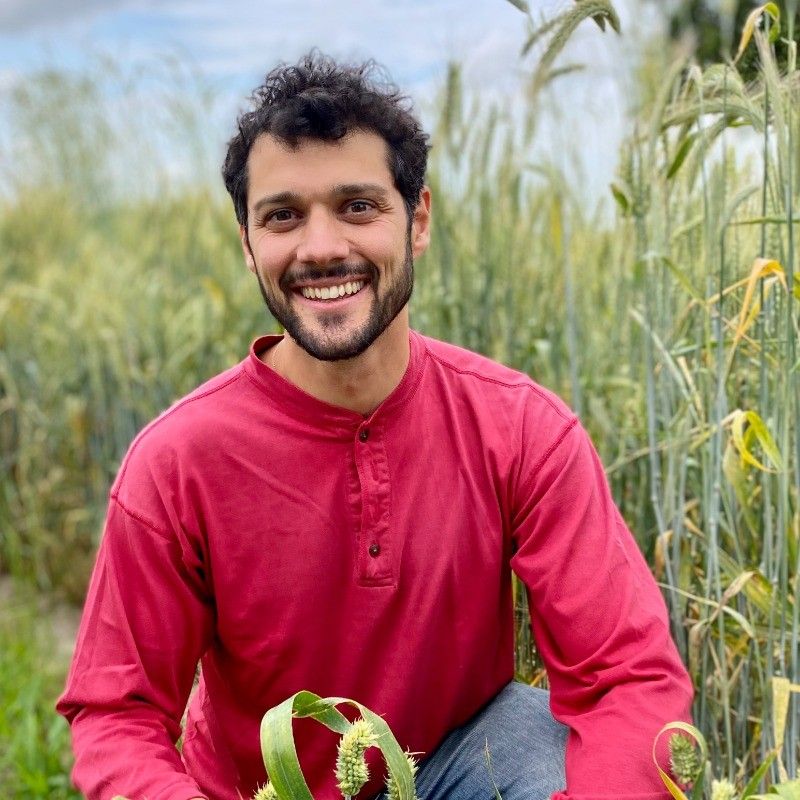
Robin Alessandro Morgan
Washington State UniversityRobin Morgan grew up in Italy surrounded by people passionate about food. Cooking has been his gateway to a journey spanning from working at a one-Michelin star restaurant in Milan to earning a PhD in crop science from the Washington State University Breadlab, with a dissertation focused on the question: “Can plant breeders change food systems?” The research spanned from the chromosomal to the field level, focusing on developing a perennial grain crop (Triticum aestivum x Thinopyrum spp.) and wheat varieties with novel seed colors. Robin is now conducting a post-doctoral fellowship at the Breadlab, integrating human and environmental health in the development of new grain varieties. -
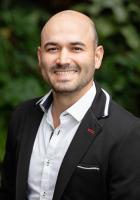
Juan Arbelaez Velez
U. IllinoisArbelaez Velez is an Assistant Professor and small grains breeder at the University of Illinois. He has previously worked at the International Center for Tropical Agriculture (Alliance Bioversity-CIAT) and the International Rice Research Institute (IRRI), where he focused on integrating genomics and phenomics tools to accelerate genetic gains for multiple traits in rice. At the University of Illinois, he leads the spring oats and winter triticale breeding programs, aiming to enhance crop diversity and the sustainability of corn belt agriculture systems. Dr. Arbelaez Velez is also developing novel breeding strategies for intercropping grasses and legumes and is interested in extending this work to include perennial crops. His research extends to perennial grains, including perennial rice, with a focus on advancing their role in agricultural systems. -

James Bever
University of KansasJames Bever is a professor at the University of Kansas specializing in the ecology and evolution of plant-microbiome interactions. His research emphasizes the significant role mycorrhizal fungi play in perennial plants, with a focus on how the domestication of Intermediate Wheatgrass has led to increased reliance on these fungi, especially under drought conditions. Additionally, his work explores how crop diversity within perennial polycultures can mitigate the harmful effects of pathogens and promote overyielding. Currently, he is investigating the combined effects of crop diversity and genetic resistance on pathogen impacts in Silflower, a perennial oilseed crop. Link to publication, Dilution of specialist pathogens drives productivity benefits from diversity in plant mixtures, here. -
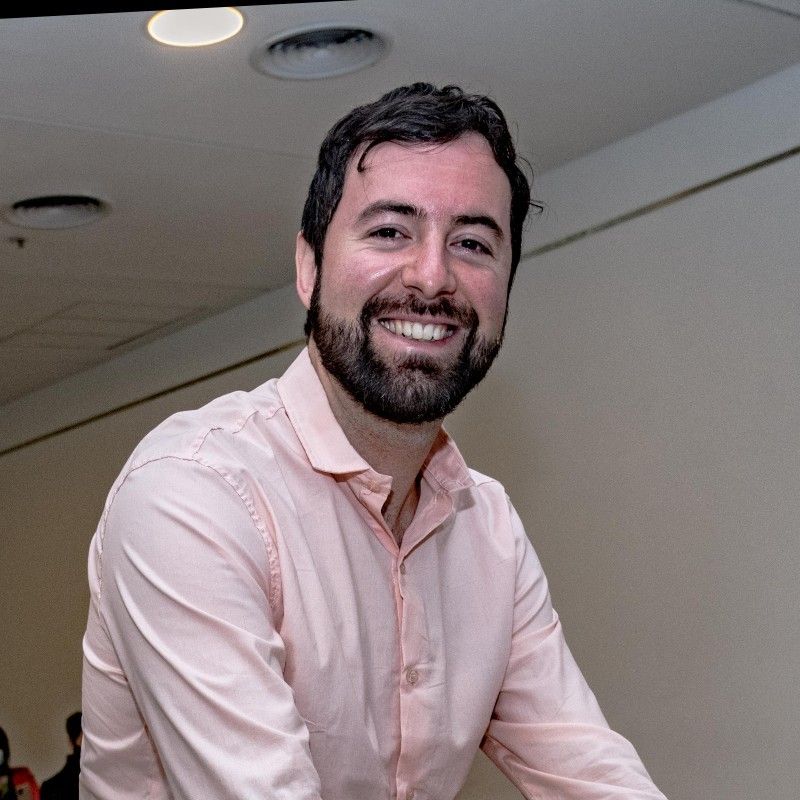
Tomas Cassani
InfiraTomas Cassani is an Argentinian agricultural engineer with a master’s degree in soil science and a PhD. He has studied perennial grain crops and their relationship with the environment (soil-climate) for several years. Tomas completed his postdoc at The Land Institute in collaboration with the University of Minnesota, focusing on Kernza. He currently works at Infira, a pioneering start-up in Argentina researching the perennization of annual crops. -

Douglas Cattani
University of ManitobaDouglas J. Cattani has worked primarily with herbaceous perennials for almost four decades, with an emphasis on breeding, perennial grass plant development, and seed production. His current research focuses on perennial crop breeding and agronomy, with particular interest in the breeding and use of intermediate wheatgrass as a dual-use crop. He is investigating plant development in intermediate wheatgrass stands and the components of seed productivity, especially as stands age. Doug is collaborating with researchers on other aspects of intermediate wheatgrass agronomy and its utilization for human food products. Additionally, he is exploring the use of digital imagery to determine stand development and yield potential in intermediate wheatgrass. Other research interests include Fusarium Head Blight and Ergot development in intermediate wheatgrass. -

Vasyl Cherlinka
Pavol Jozef Šafárik UniversityVasyl Cherlinka has over 30 years of experience in agronomy and pedology. He obtained a PhD in agrochemistry, agronomy, and soil science in 2001, with a thesis on “Substantiation of Agroecological Conformity of Models of Soil Fertility and its Factors to the Requirements of Field Crops.” In 2019, he obtained a DrSc with a specialization in soil science. Vasyl’s team has been experimenting with Kernza in various zones of Ukraine, seeing great potential in the crop in the context of climate change. Despite the ongoing conflict in Ukraine, he remains committed to advancing research and promoting perennial crops both globally and within Ukraine. -
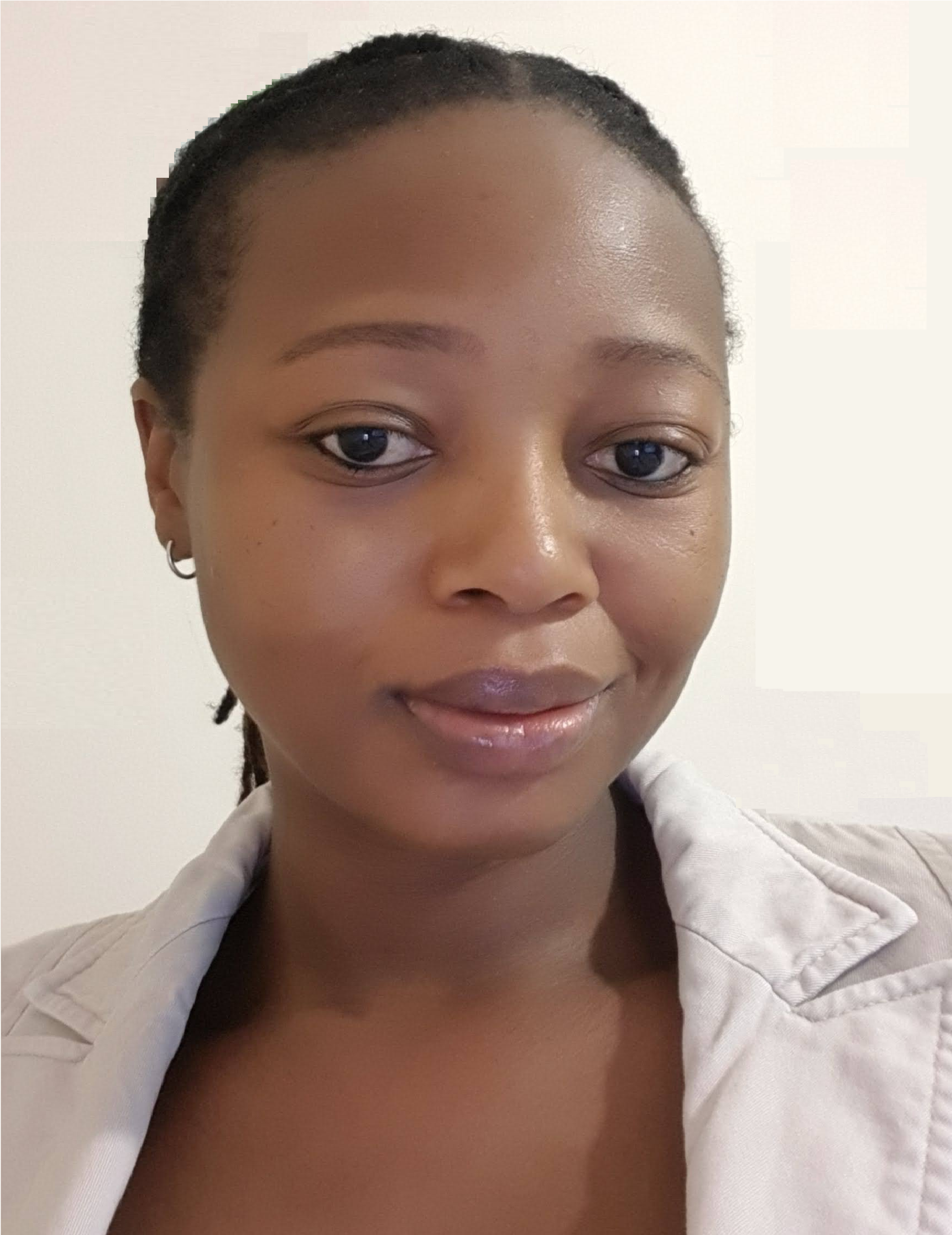
Vimbayi Chimonyo
CIMMYTVimbayi Chimonyo has 10 years of expertise in nutrition-sensitive agriculture, research for development (R4D), and transforming food systems, particularly in low-input, low-output contexts. Her work focuses on landscape agronomy and integrates sustainable intensification, agroecology, and participatory action research principles to co-develop transformative, inclusive strategies for resilient and equitable food systems. Vimbayi specializes in systems research, emphasizing agroecology and ecosystem services to address challenges faced by smallholder farmers in resource-constrained environments. By leveraging interdisciplinary approaches, her work aims to optimize synergies between productivity, environmental sustainability, and social equity. This includes exploring nature-positive and regenerative practices that enhance biodiversity, improve soil health, and strengthen climate resilience. Vimbayi collaborates with stakeholders across the research-to-policy continuum to ensure that interventions are context-specific, locally adaptable, and aligned with global sustainability goals. -
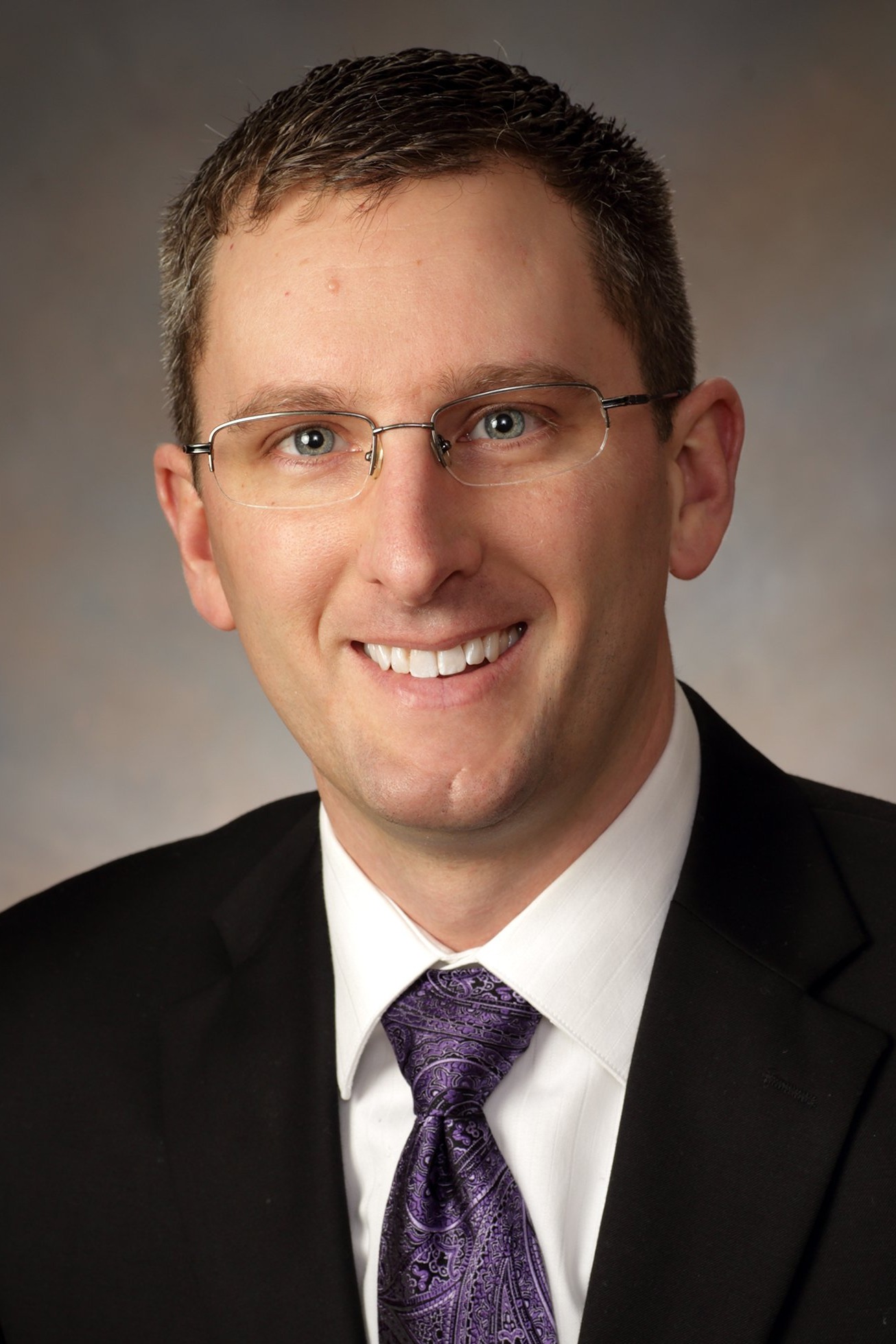
Jared Crain
Kansas State UniversityJared Crain is a Research Assistant Professor in the Department of Plant Pathology at Kansas State University. His research focuses on implementing genomic-assisted breeding (combining genomics and phenomics) to accelerate genetic gains in plant breeding both nationally and internationally. Since 2016, Jared has worked closely with The Land Institute in Salina, Kansas, to implement genomic selection into an intermediate wheatgrass breeding program, with the goal of developing a perennial grain crop. The application of genomic selection has reduced the breeding cycle of intermediate wheatgrass from two years to six months. In addition to developing genomic methods, Jared serves as the Associate Director of the USAID-funded Climate Resilient Cereals Innovation Lab, which works globally on millet, rice, sorghum, and wheat, providing opportunities to leverage findings across multiple crops. -

Christophe David
ISARAChristophe David is a Professor in Agronomy and Senior Scientist at ISARA, Faculty of Agriculture and Food Science in Lyon, France. With over 25 years of experience, Christophe has been actively involved in research and development in organic and sustainable agriculture in France. He is deeply committed to agroecology and sustainable food systems and currently coordinates and participates in various programs with researchers, farmers, and end-users to introduce perennial grains into Western European agriculture. -
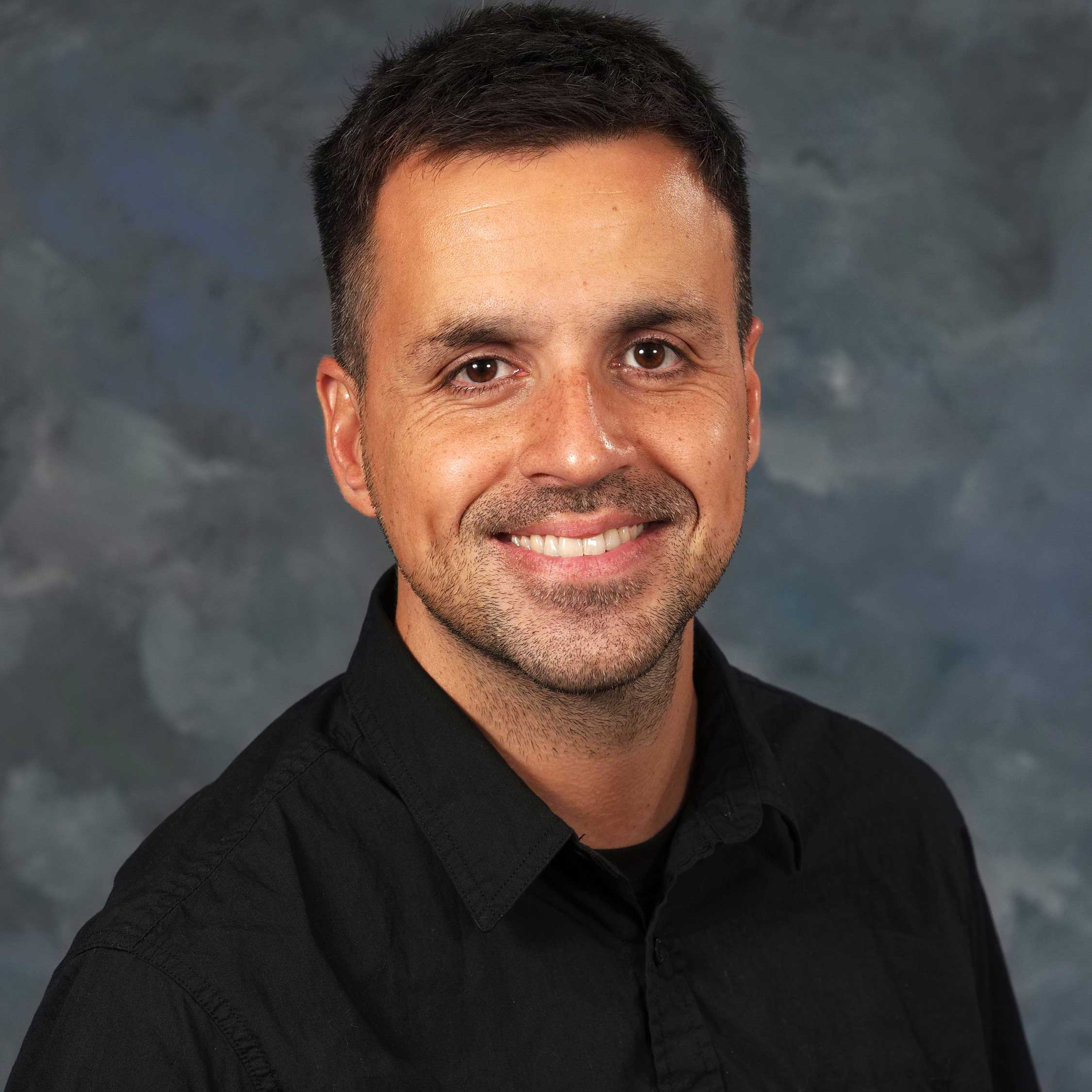
Gabriel de Oliveira
Gabriel de Oliveira is an Assistant Professor in the Stokes School of Marine and Environmental Sciences at the University of South Alabama and a Senior Scientist I at Dauphin Island Sea Lab. He is also an Early-Career Fellow of the U.S. National Academy of Sciences and an Ambassador for the State of Alabama in the American Geophysical Union Local Science Partners Program. Dr. de Oliveira’s research uses remote sensing imagery and ground observations to understand plant ecophysiological processes and regional climate feedbacks, focusing on water and carbon exchanges between the biosphere and the atmosphere. He holds a B.S. in Geography from the Federal University of Rio Grande do Sul (Brazil), and both an M.S. and Ph.D. in Remote Sensing from Brazil’s Space Agency. He has conducted Postdoctoral studies at the University of Kansas and the University of Toronto. -

Yavuz Delen
Field Crops Central Research InstituteYavuz Delen (he/him) received his Ph.D. from the University of Nebraska-Lincoln in 2022, where he worked on wheat and sunflowers under the supervision of Prof. Steven Baenziger and Prof. Ismail Dweikat. His specialization lies in plant breeding and genetics, biotechnology, and bioinformatics. Dr. Delen currently works at the Field Crops Central Research Institute, Biotechnology Research Center, in Ankara, Turkey. His research primarily focuses on several plant species, including wheat, wheatgrass, and sunflowers. -

Loit-Harro Evelin
Estonian U. of Life SciencesEvelin Loit-Harro is a professor of Sustainable Agriculture at the Estonian University of Life Sciences, where she has been developing agronomic education and research since 2011. Her research focuses on both organic and conventional agri-food systems, emphasizing the connection between management practices, food security, and climate change. A graduate of the University of Ottawa’s genetics program, Dr. Loit-Harro has a strong background in genetics, which enables her to bridge the fields of agronomy and genetics. Her expertise spans the primary production of common annual crops and grasslands, and, with her research team, she works on improving food and feed value chains. Recently, her focus has shifted to perennial crops, including perennial wheat, and she is eager to expand her knowledge in this area. -

Samuel Gameda
CIMMYTSamuel Gameda, is a Senior Soil Scientist with CIMMYT and is based in Ethiopia. His areas of work focus on the management of soil health, linkages between soil fertility and human nutrition, and initiatives for mapping and monitoring soil resources. Formerly he was director of the Ethiopian Agricultural Transformation Agency (ATA) soils program under secondment from IFPRI. Previous to that, he worked as a Senior Research Scientist with Agriculture and Agri-Food Canada in Ottawa, Canada. His work has been funded by BMGF, USAID, GIZ, and the Canadian Government. -
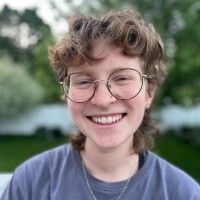
Doyle Grace
University of MinnesotaDoyle Grace is a first-year PhD student at the University of Minnesota in the Applied Plant Sciences program. They are part of the Sustainable Cropping Systems lab, led by Prof. Jake Jungers. Their research focuses on the agronomics of fall establishment for two perennials, intermediate wheatgrass and silphium integrifolium, as well as two winter annuals, winter barley and winter pea. Doyle is passionate about finding sustainable agricultural solutions that are profitable for farmers. -
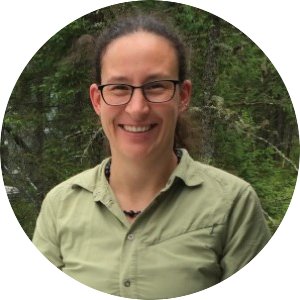
Jessica Gutknecht
University of MinnesotaJessica Gutknecht is an Associate Professor in the University of Minnesota Department of Soil, Water, and Climate. She holds a PhD in soil microbiology from the University of Wisconsin and is a soil ecologist with extensive experience studying how soil and soil biological communities mediate ecosystem responses to climate change in both natural and agricultural landscapes. Her research focuses on how soil can provide solutions for adapting to and mitigating climate change and other environmental challenges. In agricultural systems, she is particularly interested in regenerative and perennial cropping systems that protect soil health and contribute to climate solutions. She has also co-led large projects on Kernza perennial grain, with an emphasis on the need for comprehensive development of the perennial grain sector to make these solutions viable. -

Eusun Han
Aarhus UniversityEusun Han is an agronomist leading research programs focused on deep-rooted plants, including perennial grain crops, and exploring their potential to deliver unique ecosystem services. His work emphasizes the ability of these plants to reduce agricultural inputs, minimize nitrogen leaching, and enhance soil carbon sequestration. He is also interested in their performance under challenging conditions, such as drought, where deep root systems and robust canopy development are critical. Additionally, Dr. Han is a tool-maker, having developed digital and biochemical tools to simplify and improve the accuracy of plant-soil research. -
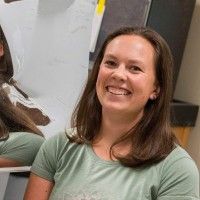
Molly Hanlon
Donald Danforth Plant Science CenterMolly Hanlon is a Senior Research Scientist at the Donald Danforth Plant Science Center in St. Louis, MO, USA. While relatively new to perennial grains, she has extensive experience in root biology, plant physiology, plant mineral nutrition, and plant-soil interactions. Hanlon is part of the New Roots for Restoration Biology Integration Institute, where she focuses on understanding how roots and root traits contribute to plant success in both agronomic and ecological contexts. She applies her previous experience in other cropping systems to characterize the variation in root growth and traits, exploring their genetic foundations and how they influence plant productivity and the soil environment. -

Richard Hayes
New South Wales Department of Primary Industries (NSW DPI)Richard Hayes is a research agronomist with the State Department of Primary Industries in New South Wales, Australia. He began evaluating perennial wheat in 2008, in a broader initiative investigating an increased role for perennial forages in cropping systems, to help stem soil degradation attributed to dryland salinity. His broad program of research still involves evaluation of perennial crops and forages, as well as management of soil acidity. Recent research projects led by Dr. Hayes include an evaluation of the grain and graze potential of perennial wheat in sheep enterprises, and an assessment of the value of pasture legumes to honeybees. His recent journal publications include an assessment of grain quality of perennial wheat material, an assessment of the meat quality and rumen proteins of lambs fed various perennial wheat-based diets, and a review of literature examining the impact of different drill row configurations in mixed species plantings. -
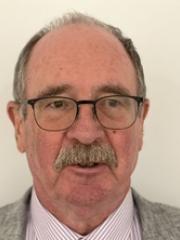
Leonard John Wade
University of QueenslandLeonard John (Len) Wade is a Foreign Expert for the perennial rice program at Yunnan University, a position he has held since 2009. In this role, he provides strategic research guidance, mentors younger staff, and helps bring research to publication in leading journals. Wade was a coauthor of the original proposal to develop perennial rice as a Frontier Project at IRRI in the mid-1990s. In 2022, he published the successful release of three perennial rice genotypes and their implications in Nature Sustainability. This work was recognized as a Runner-Up for Science Breakthrough of the Year by Science and was presented by Wade and Prof. Fengyi Hu at the American Association for the Advancement of Science in Washington, D.C., in March 2023. Wade has also contributed to research on perennial wheat and ratoon grain sorghum. -
Diyor Juraev
Diyor Juraev is a plant breeder with extensive experience in breeding, agronomy, and seed production. He is currently the Deputy Director of the Southern Agricultural Research Institute in Uzbekistan, where he leads research focused on developing crop varieties that are resistant to salt, drought, heat, and hot winds, while maintaining high yield and superior quality. With 17 years of experience, Juraev has contributed to agricultural science in Uzbekistan, collaborating on international research projects funded by CGIAR Centers, including ICARDA, CIMMYT, and FAO, as well as by FAO and UNDP. His research spans winter bread wheat, spring wheat, barley, grain legumes, and forage crops, employing a range of breeding methods, from simple to complex hybridization, and addressing various biotic and abiotic stress factors such as heat, drought, salinity, and cold tolerance. He has also focused on improving grain quality, protein content, and other agronomic traits like yield stability and adaptation. Juraev has developed several improved crop varieties and is dedicated to advancing resource-conserving production technologies in the region. -
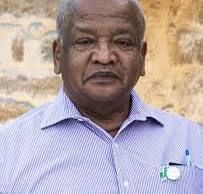
Yilma Kebede
“Yilma Kebede is a seasoned leader in plant breeding, seed systems, and program evaluation with over 40 years of experience across national and international research centers, the private sector, and philanthropic foundations. Early in his career, he led the sorghum improvement program at the Ethiopian Institute of Agricultural Research (EIAR) and managed the Melkassa Research Center. From 1992 to 2008, at DuPont/Pioneer, he coordinated sorghum product development and implemented advanced breeding technologies in South Texas, Mexico, India, and Australia. As a Senior Program Officer at the Bill and Melinda Gates Foundation (2008-2016), he oversaw grants for the sorghum and millet value chains and African seed systems. Since 2016, Yilma has contributed to an expert panel under the University of Queensland, evaluating over 100 crop breeding programs from CGIAR centers and selected NARS in Africa and Asia.” -

Clair Keene
North Dakota StateClair Keene is the corn and small grain extension agronomist at North Dakota State University. She earned her PhD in agronomy from Penn State University and holds both a BS and BA from Iowa State University. Dr. Keene is currently working with Kernza in North Dakota, focusing on projects related to seed increase and interseeding with annual grains during establishment. -

Ivan Landers
Food and Agriculture Organization“Ivan Landers is an Agricultural Officer (Cropping Systems Agronomist) with the Food and Agriculture Organization (FAO). Before joining FAO, he served as the Technical Director of Agricultural Systems at ACDI/VOCA and the East Africa Regional Agronomy Lead at Precision Agriculture for Development (PAD). With extensive field experience in Latin America and Sub-Saharan Africa, Mr. Landers specializes in smallholder production in tropical and subtropical regions. His work focuses on climate-resilient production, agroforestry, and the diversification of cropping systems. ” -

Per-Olof Lundquist
CornellPer-Olof Lundquist is an Associate Professor of Plant Physiology at the Swedish University of Agricultural Sciences (SLU) in Uppsala. Since 2017, he has been part of a team working to develop perennial barley and intermediate wheatgrass, contributing to plant phenotyping and genetic evaluation. His research focuses on the physiology, metabolism, and gene expression of nitrogen-fixing root nodules, mycorrhizal and bacterial plant-microbe interactions, root development, plant growth, and stress responses. In addition to his research, Dr. Lundquist teaches plant biology at SLU. He is passionate about developing climate-smart crops with sustainable nitrogen sources, including nitrogen-fixing plants, to improve cropping systems. Dr. Lundquist finds the interdisciplinary nature of perennial grain crop development both fascinating and challenging. -
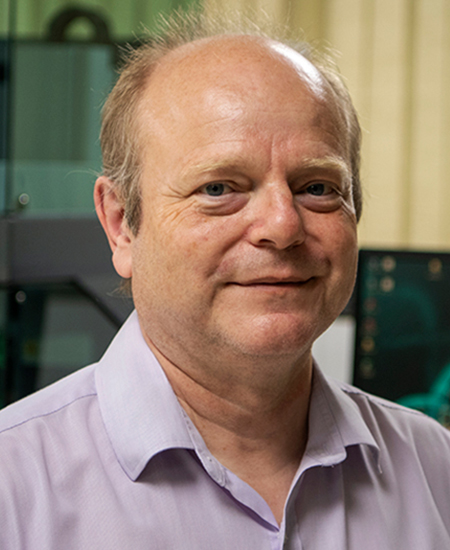
Sean Mayes
ICRISATSean Mayes joined ICRISAT in September 2022, bringing with him a rich background in crop genetics. Prior to this, he held a position as an Associate Professor of Crop Genetics at the University of Nottingham, UK. From 2013 to 2019, he was also Theme Director for crop genetics at the Crops for the Future Research Centre in Malaysia, the first global research institute focused on improving the uptake of underutilized crops. He served as Principal Investigator at the Department of Genetics, University of Cambridge, UK, from 1999 to 2003. Sean’s post-doctoral research took place at the University of Cambridge from 1995 to 1999, and he worked with Plant Breeding International, Cambridge, as a registered PhD student affiliated with the Open University from 1989 to 1995. His research focuses on genetic diversity and the use of breeding approaches to enhance resilience traits in food crops, particularly in developing minor crops for agricultural diversification and sustainability. -
Virginia Moore
Cornell UniversityVirginia Moore is an Assistant Professor in Plant Breeding & Genetics at Cornell University. Her lab focuses on plant breeding for sustainable cropping systems, including work on cover crops, perennial forages, alternative row crops, and intercropping. She has an ongoing project on breeding and management for dual-purpose alfalfa-intermediate wheatgrass intercropping systems. -
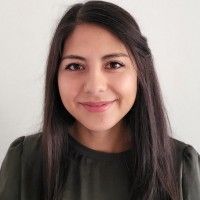
Silvana Moreno
SLU-Uppsala (Swedish University of Agricultural Sciences)Silvana Moreno is a postdoctoral researcher at the Swedish University of Agricultural Sciences (SLU) in Uppsala, Sweden. She earned her Ph.D. in plant biology, focusing on the physiological and genetic responses of wild and domesticated accessions of the perennial forage grass timothy and related species to drought and flooding. Moreno has also contributed to improving seed quality in barley and oats through conventional breeding methods and by exploring carbohydrate synthesis genes using CRISPR-Cas9. Currently, she works in Dr. Anna Westerbergh’s group, where her research is centered on domesticating the perennial wild barley relative Hordeum bulbosum. Moreno’s primary interest is in identifying genes linked to key domestication and agronomic traits to enhance crop development. -

Alex Morgunov
Kazakh Research Institute of Farming and Plant GrowingAlexey Morgounov is an Agriculture Expert based in Almaty, Kazakhstan, working with research and production institutions and international organizations. He earned a PhD in breeding in 1985 from the Moscow Agricultural Research Institute and completed a post-doctoral position at the Plant Breeding Institute in Cambridge, UK, from 1988 to 1989. Morgounov worked at CIMMYT from 1991, holding positions in Mexico, Turkey, and Kazakhstan, and serving as the Head of the International Winter Wheat Improvement Program from 2006 to 2019. He concluded his career with FAO in Saudi Arabia in 2022 before retiring in Almaty. Morgounov has published over 110 research papers in peer-reviewed journals and was recognized by the Crop Science Society of America, which elected him a Fellow and awarded him the International Crop Science Award. In 2015, after visiting The Land Institute, he began working on perennial wheat and intermediate wheatgrass (IWG). To date, two varieties have been developed, and several projects are ongoing. -

Kevin Murphy
Washington State UniversityKevin Murphy is a Professor and Director of the Breadlab at Washington State University. His research focuses on breeding grains (wheat, spelt, barley, and perennial grains) and pseudocereals (quinoa and buckwheat) for nutritional value, flavor, and traits of agronomic importance. He leads the Soil to Society initiative, which bridges the gap between agricultural and food scientists with human health researchers to develop more nutritious grain and legume varieties, and healthier foods made from these varieties. Kevin conducts research in the U.S., Rwanda, Kenya, Malawi, and Ecuador. He and his team at the WSU Breadlab welcome collaborations with researchers, farmers, food companies, and other partners interested in perennial grains. -

Marcus Nagle
Central State UniversityMarcus Nagle leads research at Central State University focused on alternative and specialty crops, bioactive compound extraction, and postharvest treatment of plant products. His research includes field trials, botanical cultivation, and experiments on plant metabolite extraction and testing. The results help identify suitable crops for Ohio and highlight potential chemistries for new bio-based products. His work aims to enhance Ohio’s agricultural potential while improving human and environmental health. Dr. Nagle holds a Doctorate in Agricultural Sciences and has extensive experience in international projects related to agricultural production, plant sciences, and renewable energy technologies. -
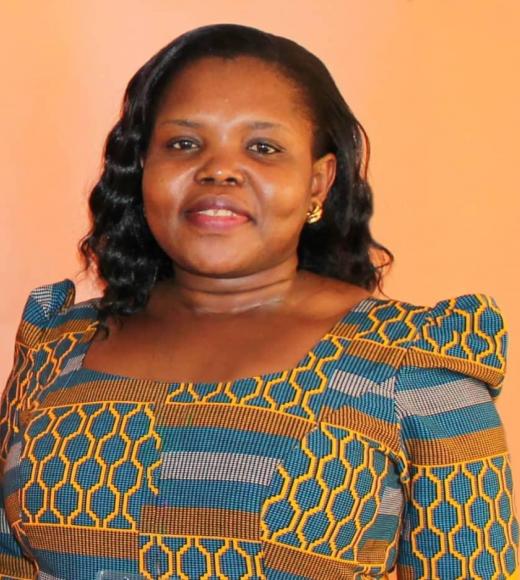
Losira Nasirumbi
Makerere ULosira Nasirumbi Sanya, Ph.D., is a social scientist and Lecturer in the Department of Extension and Innovation Studies at Makerere University, Uganda. She holds a Ph.D. in Agricultural and Rural Innovation, an M.Sc. in Agricultural Economics, and a Bachelor’s Degree in Social Sciences, all from Makerere University. Sanya has further professional training in gender and development, Integrated Agricultural Research for Development, Agricultural Value Chains Research, Monitoring, Evaluation, and Impact Assessment, and Community Development. With over 15 years of experience in strategic, adaptive, and applied research, her interests focus on agricultural and rural innovation systems, value chain development, gender-responsive agricultural research, and technology uptake. She utilizes an interdisciplinary, gender, and social inclusion lens in her research, which centers on smallholder farmers, market chain actors, and participatory processes. Prior to her current role, Sanya worked as a Senior Research Officer in Monitoring and Evaluation at the National Agricultural Research Organization (NARO), Uganda, and as a Community Development Volunteer with World Vision Uganda. She is also a Fellow, Mentor, and Trainer for the Gender-responsive Researchers Equipped for Agricultural Transformation (GREAT) project, which trains crop breeding teams across Africa and Asia to integrate gender in their work. -

Matthew Newell
New South Wales Department of Primary Industries (NSW DPI)Matthew Newell has been working in agricultural research with the NSW Department of Primary Industries since 1994. Since 2008, he has been a lead investigator in Perennial Grain research. Newell holds a Bachelor of Rural Science from the University of New England and a Master’s Degree from Charles Sturt University. In 2016, he completed a sabbatical at The Land Institute in Salina, Kansas, USA, where he gained new skills in plant breeding and agro-ecological research. Based in Cowra, NSW, Newell is currently focused on investigating the nutritional value of perennial cereal intercrops in a dual-purpose graze and grain production system. He is also involved in the domestication of Mountain Rye as a new perennial cereal. -
Gina Nichols
Aarhus UniversityVirginia Nichols, a Colorado native, earned her Ph.D. in Crop Physiology from Iowa State University. With experience across the United States and Mexico, including her time at CIMMYT, she is now an Assistant Professor at Aarhus University in Denmark. Dr. Nichols is passionate about the potential of agriculture to benefit both people and the planet, believing that creativity is key to unlocking this potential. She is currently researching the implementation of perennial grains in Denmark, exploring their use as self-cover cropping annuals and other innovative applications in sustainable agriculture. -

Toshiya Ohara
Hokkaido UniversityToshiya Ohara is a master’s student at Hokkaido University, Japan, focusing on perennial crops and soil science. His research is centered on Kernza, a perennial grain with potential to transform agriculture through soil carbon sequestration and sustainable cultivation. By studying Kernza’s unique traits in Hokkaido, Toshiya aims to address global challenges such as climate change, soil degradation, and the need for more sustainable food production systems. He also sees Kernza as a solution to Japan’s pressing local issues, including the declining and aging farming population. Its low-maintenance cultivation could reduce the labor burden on farmers while supporting long-term agricultural productivity. Through his research, Toshiya seeks to bridge innovative agricultural science with practical applications to empower communities, enhance food security, and promote environmental resilience. -
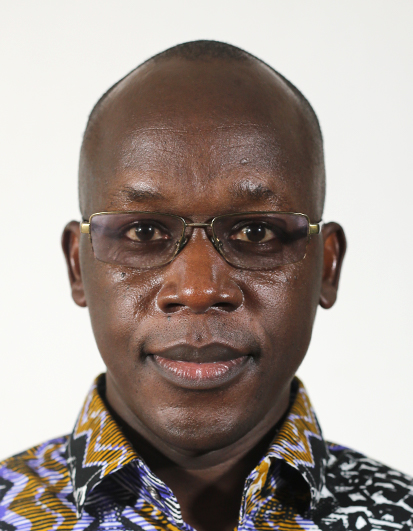
Chris Ojiewo
TLIChris Ojiewo is the Inclusive Delivery Area of Work Lead under the CGIAR Science Program on Breeding for Tomorrow (formerly the Seed Equal Initiative Lead), part of the Genetic Innovation Action Area of One CGIAR. He is also the Partnerships and Seed Systems Lead (Dryland Crops) at the International Maize and Wheat Improvement Center (CIMMYT). Chris chairs the Steering Group of the African Seed and Biotechnology Partnership Platform of the African Union (AU) and the Working Group on Seed Quality Assurance and Certification Systems of the African Seed and Biotechnology Platform. He is also the Regional Representative for Africa with the International Seed Science Society. His role involves building partnerships and networks to drive agricultural transformation by increasing farmers’ access to quality seed of improved varieties, boosting food security, nutrition, and income. Previously, Chris worked as Principal Scientist and Global Theme Leader for Seed Systems at the International Crops Research Institute for the Semi-Arid Tropics (ICRISAT), where he coordinated several projects on crop improvement and seed delivery for dryland cereals and tropical legumes, contributing to the ICRISAT team winning the prestigious African Food Prize in 2021. Chris holds a PhD and MSc in Plant Breeding from Okayama University and a BSc in Horticulture (first-class honors) from JKUAT, Kenya. -

Lennart Olsson
Lund UniversityLennart Olsson is a Professor of Geography at Lund University in Sweden and was the founding Director of the Lund University Centre for Sustainability Studies (LUCSUS) from 2000 to 2017. His research focuses on the politics of climate change, particularly in the context of poverty, food insecurity, and ill-health in sub-Saharan Africa. More recently, he has concentrated on the transition from annual monocultures to perennial polycultures in agriculture. Lennart has been a board member of The Land Institute since 2019 and a close research collaborator. From 2011 to 2019, he served as Coordinating Lead Author for two IPCC assessments (AR5 and SRCCL). In 2023, he was awarded an Advanced Grant from the European Research Council (ERC) for the PERENNIAL project. More information about Lennart Olsson’s work can be found here. -

Semra Palali Delen
Field Crops Central Research InstituteSemra Palali Delen received her Ph.D. from the University of Nebraska-Lincoln in December 2022, under the supervision of Dr. Jinliang Yang. Her research focused on wheat and maize breeding and genetics, with an emphasis on population genetics, quantitative genetics, and statistical genomics. Semra’s work included performing Genome-wide Association Studies (GWAS) to explore yield components and macro-micro elements, aiming to reduce fertilizer use while improving grain yield and nutritional content. She also utilized complex Bayesian analysis (GCTB) to estimate genetic architecture parameters of traits of interest, such as selection mode and polygenicity. Since March 2023, Semra has been working at the Republic of Turkey Ministry of Agriculture and Forestry, Field Crops Central Research Institute, Biotechnology Research Center. -

Yousef Rahimi
SLU-Uppsala (Swedish University of Agricultural Sciences)Yousef Rahimi recently completed his Ph.D. in Plant Genomics and Breeding at the Swedish University of Agricultural Sciences (SLU) in Uppsala, Sweden, where his research focused on timothy grass, a key perennial forage crop in Northern Europe. His work investigated the phenotypic and genetic diversity of both wild and domesticated genetic resources to support crop improvement. Following his doctoral studies, Rahimi joined the intermediate wheatgrass (Kernza®) breeding project at SLU, led by Dr. Anna Westerbergh. His expertise includes population genomics, genome-wide association mapping (GWAS), and genomic selection. Rahimi’s current research aims to apply genomic selection techniques to accelerate breeding and enhance genetic gains in Kernza®, a promising perennial crop. He is dedicated to advancing the development of perennial crops to address the challenges of sustainable agriculture. -
Damian Ravetta
Museo Egidio Feruglio-CONICETDamian Ravetta is focused on the domestication of perennial plant species that provide novel raw materials, revenue for farmers, and maintain ecosystem services and water and energy cycles in environments with limited water. His work explores how perenniality adds a new layer to the evolving theory of domestication. He has experience in germplasm collection and evaluation, ecophysiology research (his main focus), product extraction and characterization, and breeding on perennial species such as Lesquerella, Silphium, Lupinus (seed-oil), Hesperaloe, Yucca, Kenaf, Bromelia (fibers), Guar, Prosopis, Cercidium (gums), Guayule, and Grindelia (resin and rubber). He is the head of Departamento de Plantas Actuales at MEF, CONICET, working in collaboration with Universidad de Buenos Aires, INTA, University of Arizona, CSIC (Spain), and The Land Institute. Damian currently teaches Plant Physiology and Crop Ecophysiology at Universidad de la Patagonia, Argentina, and has taught at the University of Arizona, Universidad de Buenos Aires, and other institutions. -
Renata Reinheimer
Universidad Nacional del LitoralRenata Reinheimer is the Co-Founder and Chief Scientific Officer of Infira, a startup founded in 2020 in Santa Fe, Argentina. Infira uses genetic engineering technology to convert current annual commercial crops into highly productive perennial versions in a single step. In addition to her role at Infira, Renata is a professor at the Universidad Nacional del Litoral, an Independent Researcher at CONICET, and the director of the Development Evolution Laboratory (LED) at the Instituto de Agrobiotecnología del Litoral (IAL, CONICET-UNL) -
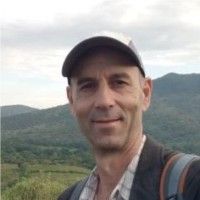
Jeffrey Ried
TLIJeffrey Ried is a research plant scientist by training who transitioned to agricultural development, food security, and health in Africa over 20 years ago. His experience includes making grants for a large philanthropy, helping to establish the Agricultural Transformation Agency in Ethiopia, and running a nonprofit with his wife since 2005 that supports primary and secondary education in rural Ethiopia. He currently works on agricultural transformation in Ethiopia and Togo for the World Food Programme. Jeffrey believes that perennial grains can address many of the challenges faced by countries struggling with climate change, especially in low-resource settings. He is also a board member of The Land Institute. -

Elliott Ronald Dossou-Yovo
Africa Rice (CGIAR)Elliott Dossou-Yovo is an environmentalist with a Ph.D. in Climate Change and Agriculture. As a Climate Change Scientist at AfricaRice, he leads research on the impacts of climate change on crop yields, the development of climate-resilient innovations, climate information services, greenhouse gas mitigation, and sustainable landscape management. Dossou-Yovo’s expertise includes crop and statistical modeling, machine learning, GIS, and climate downscaling. He has authored over 40 publications in high-impact, peer-reviewed journals, contributing significantly to the field of climate change and agriculture. -
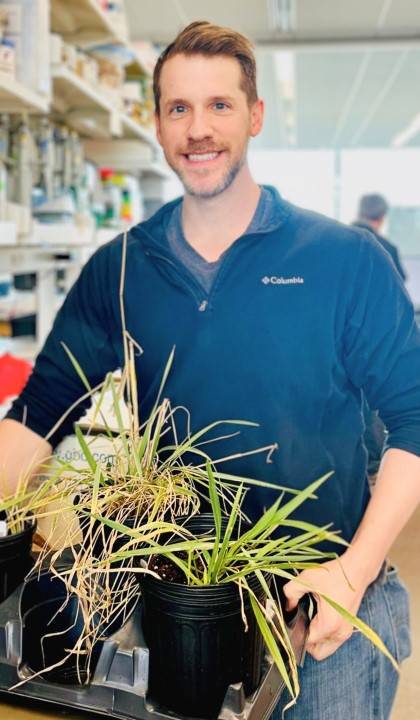
Matthew Rubin
Saint Louis UniversityMatthew Rubin is an Assistant Professor in the Department of Biology at Saint Louis University in St. Louis, MO, USA. He began collaborating with members of the perennial grains community in 2019 and is currently focused on developing phenomic selection (PS) models to accelerate the breeding of perennial grains. His research involves evaluating relationship matrices constructed using various high-dimensional phenotypic datasets collected at the seed/seedling stage and assessing the performance of PS models to predict agronomically important traits such as disease resistance and yield in the field for intermediate wheatgrass, sainfoin, and silflower. -
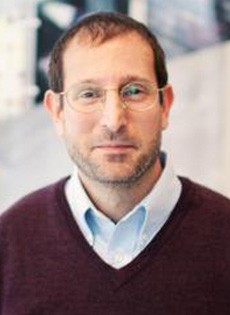
Erik Saks
U. IllinoisErik Sacks is a geneticist and plant breeder at the University of Illinois at Urbana-Champaign. A native of New York, he earned his BS from Cornell University and completed graduate studies at UC Davis, where he obtained an MS in horticulture and a PhD in genetics, focusing on fruit color genetics in strawberries and interspecific crossability in tomatoes. After post-doctoral research at Ohio State University’s OARDC and UC Davis, he joined the International Rice Research Institute in the Philippines to lead the Perennial Upland Rice project. He later worked at HortResearch in New Zealand on blueberries, USDA-ARS in Mississippi on cotton, and Mendel Biotechnology Inc on Miscanthus. He joined the University of Illinois in 2010, where his research lab focuses on crop wild relatives, germplasm conservation, and the development of new crops, with ongoing work on Miscanthus, sugarcane, and rice. -

Mohammad Sameri
Mohammad Sameri has extensive experience in barley and wheat breeding, starting at the International Maize and Wheat Improvement Center (CIMMYT) in Mexico (1999) and the National Institute of Agrobiological Sciences (NIAS) in Tsukuba, Japan (2001-2010). He then joined Anna Westerbergh’s group at the Swedish University of Agricultural Sciences in Uppsala. Their research focuses on developing the first perennial barley and improving intermediate wheatgrass (Kernza®) for cultivation in Sweden and other cold temperate climate regions. They have established populations with different geographical and genetic origins and developed selection cycles for both species based on phenotypic field evaluation. -
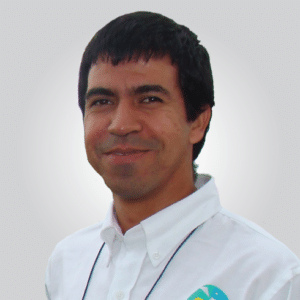
Yamid Sanabria
CIATYamid Sanabria is a plant breeder at CIAT with extensive experience in rice genetic improvement. For the past nine years, he has led the FLAR (Latin American Fund for Irrigated Rice) program, focusing on developing high-yielding, high-quality rice varieties that are adaptable to both tropical and temperate environments. His work aims to enhance resistance to biotic and abiotic stresses, improve rice sustainability, and protect soil health. Sanabria has been instrumental in developing O. sativa x O. longistaminata populations, with the goal of creating perennial rice varieties. His research emphasizes innovative strategies for increasing yield and improving the adaptability of rice crops in Latin America. -
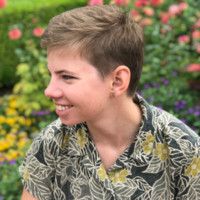
Marie Schaedel
Oregon State UniversityMarie Schaedel is a USDA NIFA postdoctoral fellow at Cornell University, where her research focuses on plant-microbial interactions that drive carbon cycling in agroecosystems, as well as land management’s impact on microbial carbon metabolism. In 2025, she will join Oregon State University as an assistant professor of soil microbiology. Dr. Schaedel is particularly interested in extending her research to perennial systems and is open to new collaborations. She aims to connect ecological principles, such as community assembly, to nutrient transfer and organic matter dynamics in perennial agriculture. -
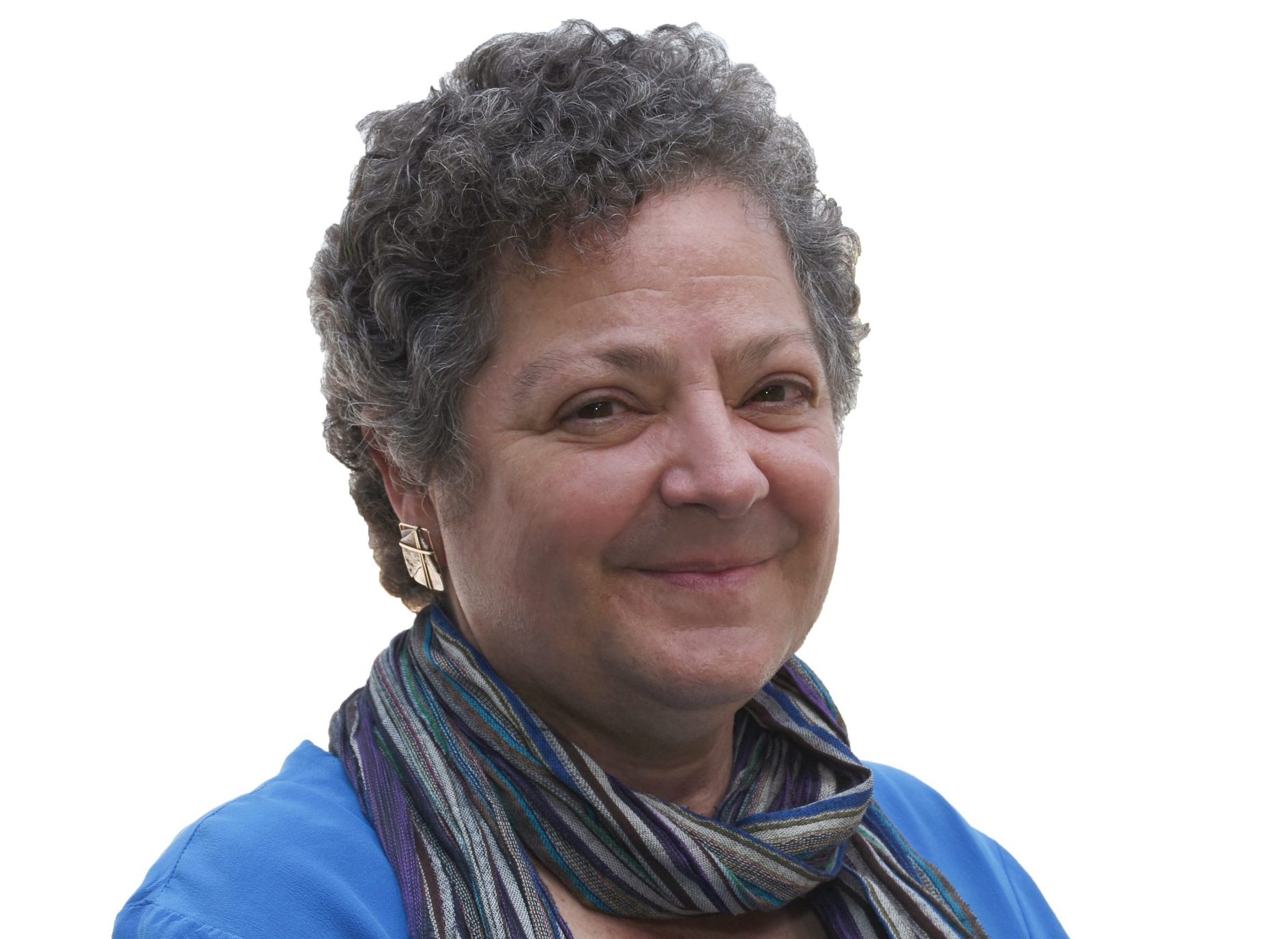
Sieg Snapp
CIMMYTSieg Snapp is the director of the Sustainable Agrifood Systems program at CIMMYT, where co-learning with partners is key to innovations in agricultural development for Africa, Asia, and Latin America. Snapp has partnered with local and international scientists to tackle sustainable development goals, improve livelihoods, and farm sustainably, as a professor at Michigan State University and now at CIMMYT. Her over two hundred publications and three edited books address agrodiversification and novel crop traits such as perennial growth and crop-soil microbial assocations. Agroecology, participatory action science, open data and soil health extension are key areas of interest. She is excited for CIMMYT to be a co-host of the Perennial Grains Meeting on Pathways to a Perennial Future. -

Chase Stratton
Delaware State UniversityChase Stratton is a researcher at Delaware State University with a background in sustainable pest management and data science. His work focuses on manipulating agricultural environments using natural products to reduce insect pest presence and damage, while minimizing environmental impacts. Stratton is interested in plant-insect-microbe interactions, chemical ecology, bioinformatics (specifically plant phylogenies), cheminformatics, and developing code to support complex analyses. As the director of the Data Science Research and Education Hub at DSU Downtown, he is expanding the machine learning infrastructure available to faculty and students and providing training opportunities in high-performance computing for research. His current focus is on developing an artificial intelligence system, aiNsect, which will translate research findings into applications for agriculture, health, and basic ecological outcomes. -
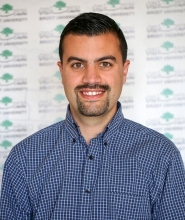
Omar Tesdell
Birzeit UniversityOmar Tesdell, Ph.D., is an associate professor in the Department of Geography at Birzeit University in Palestine. Since 2018, he has conducted ongoing fieldwork on perennial grains and other perennial crops suited for Mediterranean climates. He has also focused on developing data platforms to support perennial agriculture research. Dr. Tesdell’s peer-reviewed research has been published in journals such as Frontiers in Plant Science (2023), Plants, People, Planet (2020), Journal of Arid Environments (2020), Agroecology and Sustainable Food Systems (2019), International Journal of Middle East Studies (2015), and Geoforum (2017). -

Joanne Thiessen Martens
University of ManitobaJoanne Thiessen Martens is an Assistant Professor of Soil Chemistry and Fertility in the Department of Soil Science at the University of Manitoba in Winnipeg, Manitoba, Canada. She teaches and conducts research on soil fertility and nutrient flows in agroecosystems, with a particular focus on phosphorus dynamics and alternative crop production systems. Her current research explores perennialization strategies in annual cropping systems, nutrient dynamics in perennial grains, and soil–fertilizer–plant interactions related to recycled phosphorus inputs. Joanne has worked closely with farmers, agronomists, extension personnel, and researchers across Manitoba, Canada, and internationally. -
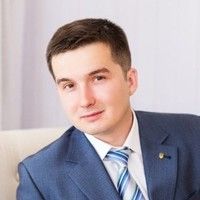
Anton Tkachenko
NAASAnton Tkachenko is a senior researcher and Head of the Economics Department at the National Scientific Center “Institute of Agriculture of the National Academy of Agrarian Sciences of Ukraine.” His areas of expertise include economic analysis and project management, with his dissertation focusing on the economic efficiency of short rotation coppice (SRC) Willow. Currently, he is involved in several Kernza projects and conducts research as a visiting scientist at the Swedish University of Agricultural Sciences (SLU) in Uppsala, where he explores the economic advantages of perennial systems in Ukraine’s post-war reconstruction. Dr. Tkachenko is passionate about international collaboration and enjoys working on multidisciplinary projects. -

Yoshitaka Uchida
Hokkaido UniversitySoil scientist Yoshitaka Uchida, an expert in farming that protects soil nutrients and reduces land degradation, is a participant in Hokkaido University’s programme to support the United Nations Sustainable Development Goals. He promotes a holistic approach in his research, which is based on a wide spectrum of methods ranging from technology to analysing and harnessing consumer demand. -
Richard Warner
TLIRichard Warner is a Senior Analyst at The Land Institute, where since August 2022, he has led TLI’s support for perennial grain research and development in Ukraine. In collaboration with five Ukrainian universities and institutions, this partnership has expanded to include a Kernza breeding program, a five-site Kernza research project, other Kernza trials, and Kernza market exploration in Europe. As Director of Green Lands Blue Waters at the University of Minnesota, he participated in early Kernza commercialization and promoted government policies supporting environmental payments to Kernza farmers in the U.S. Midwest. Previously, he worked on agriculture, forestry, and biodiversity projects for The World Bank, International Finance Corporation, UNDP, European Union, USAID, and various consulting firms, government agencies, and NGOs, including 13 years for The Nature Conservancy. -

Anna Westerbergh
SLU-Uppsala (Swedish University of Agricultural Sciences)Anna Westerbergh is an Associate Professor in Genetics and Plant Breeding at the Swedish University of Agricultural Sciences (SLU) in Uppsala, where she leads research and breeding on perennial cereals. Her postdoctoral research at the University of Minnesota focused on the genetics of annual and perennial wild relatives of maize. Upon joining SLU, she shifted her studies to the use of wild relatives as genetic resources for developing new sustainable and climate-adapted crops. Through field evaluations of numerous perennial Hordeum species, her research group identified H. bulbosum as the best candidate for domestication and initiated a program in 2017 to develop the first perennial barley. Another key aspect of her work involves breeding intermediate wheatgrass (Kernza®), a perennial relative of wheat, for cultivation in Northern Europe. Her research also explores fields for production and product development, variety trials, and co-cultivation with perennial nitrogen-fixing legumes. -
Astrid Wingler
University of College CorkAstrid Wingler holds a PhD in plant physiology from the University of Tübingen (Germany) and has worked as a postdoctoral researcher in Sheffield (UK) and Basel (Switzerland). She then moved to University College London (UK) as a Lecturer and later Senior Lecturer. In 2015, she joined University College Cork (Ireland) as a Professor of Plant Biology and has held the roles of Head of Plant Science and Head of the School of Biological, Earth & Environmental Sciences. Her research focuses on the responses of plants to a changing environment, with the goal of increasing the climate resilience of agri-ecosystems. She is particularly interested in how physiological processes, such as resource allocation and senescence, influence the resilience and productivity of perennial grass species, including wild species, models, and crops. -
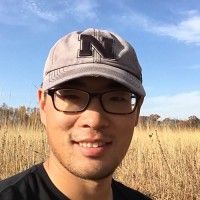
Yi Yang
Colorado State UniversityYi Yang is a research scientist at Colorado State University, specializing in the intersection of agriculture, climate change, and ecosystem modeling. His research explores the impact of agricultural practices on greenhouse gas emissions and soil carbon storage, with a focus on optimizing agriculture to address future climate challenges. Using the DayCent ecosystem model, Dr. Yang evaluates the climate and soil health benefits of perennial crops such as Kernza and perennial rice. He also studies global agricultural greenhouse gas emissions under various management and climate scenarios. Additionally, Dr. Yang is enhancing the DayCent model by updating its soil water drainage and methanogenesis modules to improve accuracy and applicability. His work contributes to advancing sustainable agricultural practices that mitigate climate change while promoting long-term soil health. -

Rauan Zhapayev
Kazakh Research Institute of Agriculture and Plant GrowingRauan Zhapayev has been with the Kazakh Research Institute of Agriculture and Crop Growing since 2001. From 2010 to 2019, he worked as an agronomist at the regional office of the International Maize and Wheat Improvement Center in Kazakhstan. Since 2019, he has served as the head of the crop production department at the institute. With over 20 years of experience in developing crop cultivation technologies, Dr. Zhapayev has contributed to numerous international and national research projects. Since 2022, his research has focused on studying samples of perennial grain crops. From 2024 to 2026, he will lead the project “Increasing Crop Biodiversity, Soil Conservation, and Improvement through the Use of Perennial Grain Crops,” funded by the Ministry of Science and Higher Education of the Republic of Kazakhstan. -

Moses Biruma
NARO (National Agricultural Research Organization)Moses Biruma is the Director of Research at Abi Zardi, one of the 16 Agricultural Research Institutes under the National Agricultural Research Organisation (NARO). With over 20 years of experience in agricultural research and development, he has contributed to multidisciplinary projects ranging from technology generation to dissemination. Before joining NARO, he worked with Makerere University, the African Crop Science Society (ACSS), and the International Institute of Tropical Agriculture (IITA-Uganda). Moses has extensive experience managing collaborative donor-funded research projects and maintains strong partnerships with national agricultural research systems, regional organizations, and international agricultural research centers. His expertise lies in crop protection and breeding, with a particular focus on dryland cereals such as sorghum and finger millet. He has authored and co-authored numerous peer-reviewed research articles, books, and book chapters. Additionally, he has trained and mentored graduate students, fostering the next generation of agricultural researchers. -
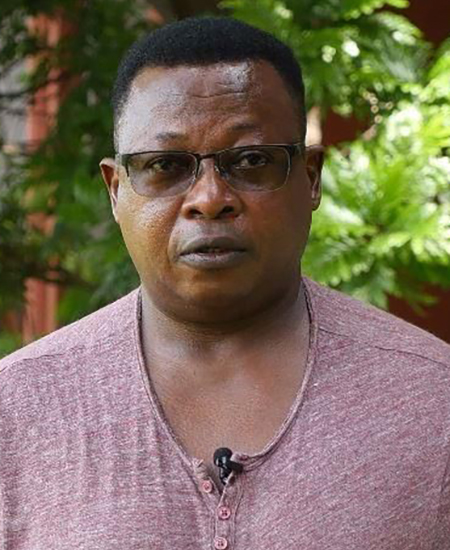
Ephrem Habyarimana
ICRISAT“Prof. Dr. Ephrem Habyarimana is a Principal Scientist in sorghum breeding research at the International Crops Research Institute for the Semi-Arid Tropics (ICRISAT) global headquarters in India. He leads ICRISAT’s research on annual and perennial sorghum breeding, focusing on improving productivity and income generation for smallholder farmers in Asia and beyond. He is also a Professor at the University of Agricultural Sciences, Department of Genetics and Plant Breeding, in Raichur, India. With over 30 years of experience in crop science, genetics, and plant breeding, he specializes in sorghum improvement, integrating agroecological and genomic modeling, big data analytics, phenomics, and genomics to enhance breeding efficiency and genetic gains. His research emphasizes sustainability, resilience, and biodiversity-friendly crop improvement. Prof. Habyarimana has trained in North and Latin America, Africa, Asia, and Europe and has authored numerous scientific publications and books, as documented in Scopus and Google Scholar.” -

Margrethe Falkenberg
“Københavns Universitet (University of Copenhagen) ““Margrethe Falkenberg is a PhD student at the University of Copenhagen, researching Hordeum bulbosum, a perennial relative of barley. Her work focuses on developing tissue culture and transformation protocols, with recent efforts demonstrating success in inducing embryogenic callus from immature embryos and using particle bombardment for gene delivery. However, post-transformation regeneration remains a key challenge. The primary goal of her research is to apply CRISPR/Cas9 technology to introduce targeted mutations in key domestication genes. Her current focus is on Btr1 and Btr2, which control the brittle rachis phenotype in barley. By refining transformation techniques and overcoming regeneration barriers, her work aims to contribute to the genetic improvement of perennial cereals.” -
Luciana Gonzalez Paleo
Museo Egidio Feruglio-CONICET“Luciana Gonzalez Paleo is a researcher specializing in the ecophysiology of perennial and annual forbs, with a focus on functional strategies related to water, carbon, and nitrogen acquisition, use, and conservation. Her work explores how domestication and breeding influence key plant traits, including root morphology, carbon economy, and internal nitrogen recycling. She also investigates the relationships between functional traits and ecosystem processes such as decomposition, soil organic matter dynamics, soil respiration, and arbuscular mycorrhizal (AMF) symbiosis. Additionally, her research examines the connection between yield stability and resource use strategies, contributing to a deeper understanding of perennial crop performance and sustainability.” -

Pradeepa Hirannaiah
Hudson AlphaPradeepa Hirannaiah is a Senior Scientist at the HudsonAlpha Institute for Biotechnology. With a background and interest in genetics and genomics, her research focuses on advancing knowledge in these fields. Currently, her work is focused on Miscanthus, a perennial crop. -

Brent Hulke
USDA-ARS“Brent Hulke is a Research Geneticist at the Sunflower Improvement Research Unit in Fargo, North Dakota, where he works on annual sunflower quantitative genetics and breeding. He is also involved in the domestication of North American native species, including Lewis flax and Silflower. In addition to his research, Brent holds positions as an Associate Adjunct Professor in the Ecology and Evolutionary Biology Department at the University of Colorado – Boulder, and as an Adjunct Professor in the Plant Sciences Department at North Dakota State University. Previously, Brent was a Graduate Student Fellow at The Land Institute from 2005 to 2007, where he worked as a PhD student under Dr. Don Wyse at the University of Minnesota. During this time, he focused on developing genetic stocks for perennial sunflower and perennial flax.” -
Jimmy Lamo
NARO (National Agricultural Research Organization)Dr. Jimmy Lamo is a plant breeder with a PhD in Plant Breeding from the University of Kwazulu-Natal (UKZN), as well as an MSc and BSc from Makerere University. He is the National Lead Rice Breeder and Program Leader for Maize and Rice Research at the National Agricultural Research Organization (NARO) in Uganda. Dr. Lamo has released 22 rice varieties, including the first-ever perennial rice in Africa, NARORICE-1 (PR 107), which was introduced in 2022. His research also includes the development of several perennial rice pipeline lines. In addition to his breeding work, Dr. Lamo has supervised 10 PhD and 22 MSc students from 9 African countries and has contributed to numerous collaborative projects. He has served as the focal point scientist in various initiatives and undertaken consultancies with organizations like FAO Uganda. Dr. Lamo was honored to serve as the President of the Rice Breeding Task Force for Africa and continues to make significant contributions to the development of rice and maize research in the region. -
Michael Palmgren
Københavns Universitet (University of Copenhagen)Dr. Michael Palmgren is a researcher whose laboratory has traditionally focused on studying molecular mechanisms of solute transport and abiotic stress tolerance in plants. Recently, their work has expanded to explore the accelerated domestication of perennial grasses and other naturally stress-tolerant plants. -

Meagan Schipanski
Colorado State UniversityDr. Meagan Schipanski is an Associate Professor in the Department of Soil and Crop Sciences at Colorado State University. Her research group applies systems-based approaches to improving the resilience of cropping systems, including topics of crop diversity, soil health, nutrient and water management, and climate adaptation strategies. Most of her research is conducted on working farms and in collaboration with innovative producers across the semi-arid Great Plains region of the U.S. She was a Land Institute Graduate Fellow during her graduate studies at Cornell University and, in more recent years, contributed to cross-state research on Kernza as a dual-use forage and grain crop. -
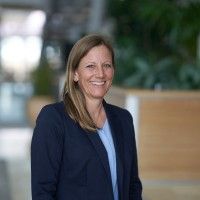
Allison Miller
Donald Danforth Plant Science CenterProfessor of Biology, Saint Louis University; Member and Principal Investigator, Donald Danforth Plant Science Center -

Alejandra Vilela
Museo Egidio Feruglio-CONICETD. at the Laboratory of Vascular Plants of the Faculty of Exact and Natural Sciences of the University of Buenos Aires (UBA) in aspects of systematics and anatomy of the genus Prosopis (Fabaceae). In 1997, through a Fulbright grant, I did a postdoctoral stay at the Desert Legume Program (University of Arizona). There I started working on ecophysiology of perennial plants. -
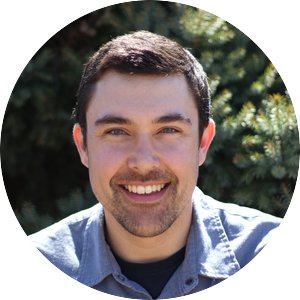
Jacob Jungers
University of Minnesota -

Dorothy Birungi Namuyiga
University of Bonn -
Wenqian Kong
University of Georgia -
Valentin Picasso
University of Wisconsin-Madison -
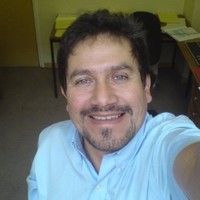
Rolando Oros
Fundación PROINPA
CIMMYT Campus Services
-
Monday to Friday
Breakfast: 7:30 to 11:00 am
Lunch: 12:00 to 2:30 pm and 3:00 pm to 4:30 pm
Vending machines are located on the first floor of the Maya building, in the Administrative Building, and at the comedor entrance. Only cash (Mexican pesos).
-
Check-out time is 12:00 pm. Any check-out after 3:00 pm may incur an additional night charge. Please return your access card to the Maya reception upon check-out.
Late check-outs are subject to availability. Any check-outs after 3.00 pm will incur an additional night charge.Failure to return the card will result in a $2.00 charge.
-
This service incurs a cost depending on the quantity and type of garments to be laundered. If you require this service, please fill out the laundry form and place your clothes in the plastic bag provided in your room. Housekeeping will collect them at 10:00 am and return them at 5:00 pm on the same day.
Alternatively, self-service laundry is available at no cost, but you must provide your own detergent and/or softener. If you require assistance with this service, please contact the concierge team.
*Laundry service is free for guests staying at the Guest House. -
Our cleaning staff ensures that rooms are cleaned daily. For student accommodation, cleaning is provided twice a week, on Mondays and Wednesdays during the day.
Sports and Recreational Areas
-
Opening hours: Monday to Sunday from 6:00 am to 10:00 pm.
The gym does not have a personal trainer. Users are responsible for their own safety and for following the gym equipment usage instructions. Users must be aware of their physical limitations. Before engaging in any exercise routine, users are advised to consult with a professional and their personal physician.
Entry is not permitted for children under 12 years old. Teenagers between 12 and 17 years old must be accompanied by a parent. Priority will be given to adults for gym usage.
Lockers are for daily use. Users must bring their own padlock and vacate them by 9:00 pm each day. Backpacks are not allowed in the exercise areas.
Proper sports attire and footwear are mandatory.
Access is allowed only with water and/or hydrating beverages. Entry with food, alcoholic beverages, or chewing gum is not permitted.
Smoking is not allowed.
-
Opening hours: Monday to Sunday from 7:00 am to 7:00 pm.
The pool does not have lifeguard personnel. Users who use the pool are responsible for their own safety.
Altering safety signs or playing with pool safety and/or cleaning equipment is strictly prohibited.
Children under 12 years old, and anyone requiring special attention, must be accompanied by a responsible adult. Access doors to the pool must always remain closed to prevent young children from entering alone.
Facilities for bathing and changing are available. Changing clothes inside or near the pool is prohibited. Swimming in street clothes is not allowed; proper swimwear is mandatory.
Users must use the showers before entering the pool.
Access is not permitted for individuals with any type of skin or eye disease, or any infectious condition that could be contagious or contaminate the water. Access is also not allowed for individuals wearing bandages or casts.
Due to the shallow depth of the pool, diving is not allowed.
Running, pushing, engaging in horseplay, or any activity that may disturb other users in the pool area is not allowed.
Food and/or beverages in glass containers are not allowed in the pool area. Food and beverages in plastic containers can only be consumed at tables located around the pool.
Bicycles, tricycles, skates, or skateboards are not allowed in the pool area.
Electric appliances or bulky toys are not allowed in the pool area. The use of floating mattresses is only allowed when there is enough space in the pool so as not to inconvenience other users.
Please refrain from littering, chewing gum, tobacco use, spitting, or throwing objects into the pool.
-
These courts are available Monday to Sunday from 8:00 am to 8:00 pm.
The sports courts do not have a coach or supervisory personnel. Users are responsible for their own safety.
Children under 12 years old, and anyone requiring special attention, must be accompanied by a responsible adult.
Proper sports attire and footwear are mandatory.
Access is only permitted with water and/or hydrating beverages. Entry with food, alcoholic beverages, or chewing gum is not allowed.
Smoking is not allowed.
Bicycles, tricycles, skates, or skateboards are not allowed in the soccer, volleyball, and basketball court areas.
Location
CIMMYT global headquarters
Carretera México-Veracruz, Km. 45, El Batán
56237 Texcoco, MÉXICO
FAQ
Health Requirements: Mexico has no special vaccination requirements for entry.
On arrival-Immigration and Customs: Bring Doctor’s prescriptions on letterhead for all medications that you have in your luggage other than aspirin or “over the counter” products. Make sure you have well in advance the phytosanitary permits for Mexico in case you are bringing seed, culture, plants, soil or other materials.
Safety measures: A negative COVID-19 test is not required upon entry to the country. However, travelers arriving via air and land borders as well as aircrew members may be subject to health screenings including temperature checks. Those exhibiting symptoms may be subject to additional health screening and/or quarantine.
Kindly note that in the migration review filter, the visitors must present:
- Passport or current identity and travel document that is valid under international law.
- The immigration authority may request the foreign person to verify the reason for their trip, through any of the following documents:
- Hotel reservation
- Return tickets (itinerary)
- Letter of invitation
Accommodation will be arranged for all participants either in CIMMYT facilities and in Texcoco available hotels.
A shuttle service will be offered at each hotel in the morning to proceed to CIMMYT headquarters to attend the conference, as well as transportation will be facilitated to return to Texcoco hotels in the late afternoon.
Confirmed shuttle schedules will be informed in advance.
